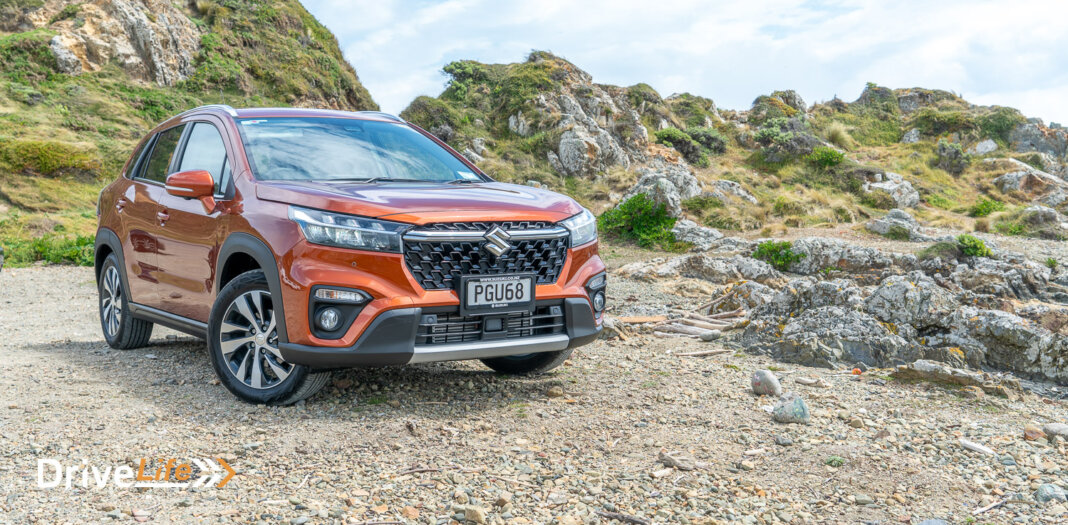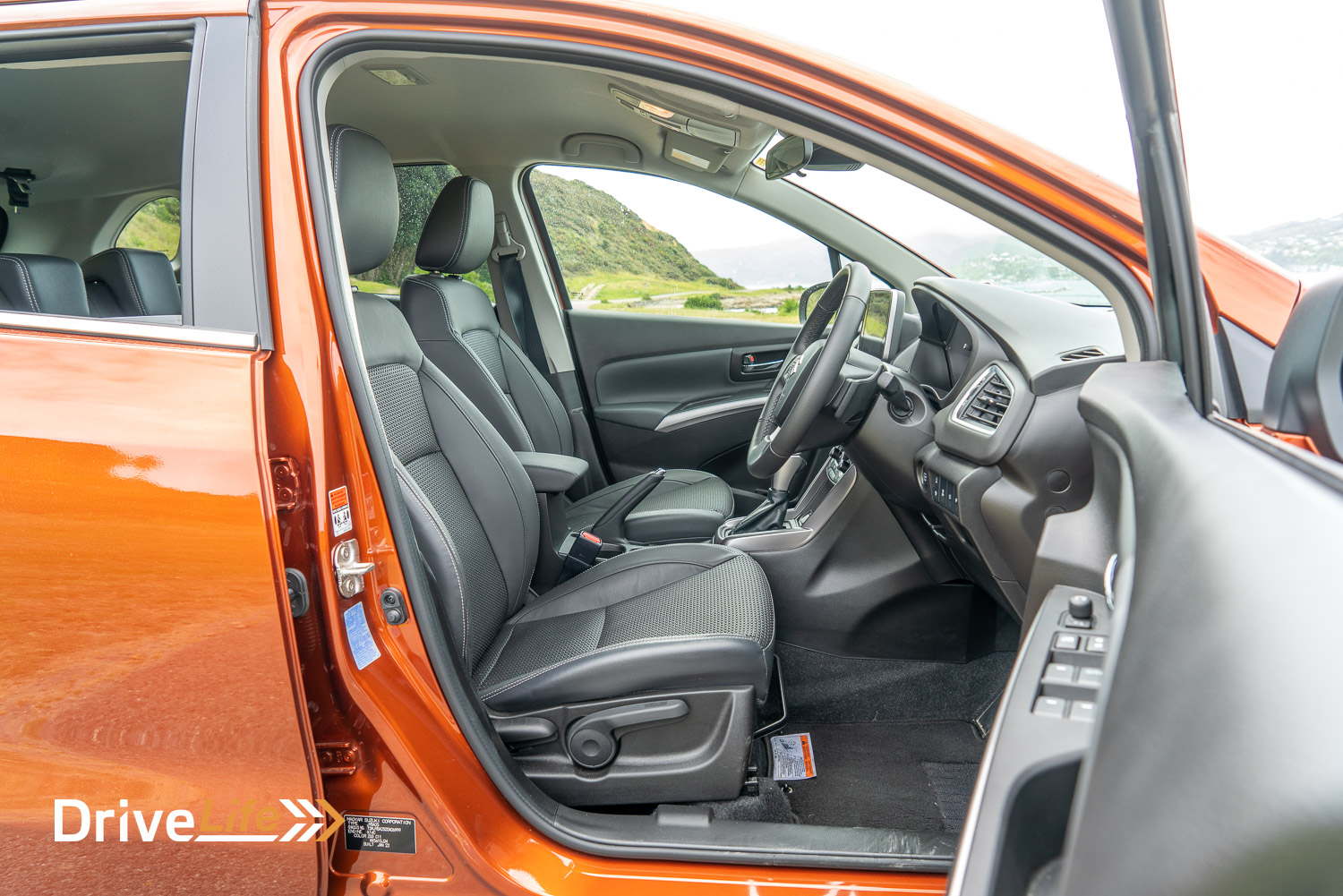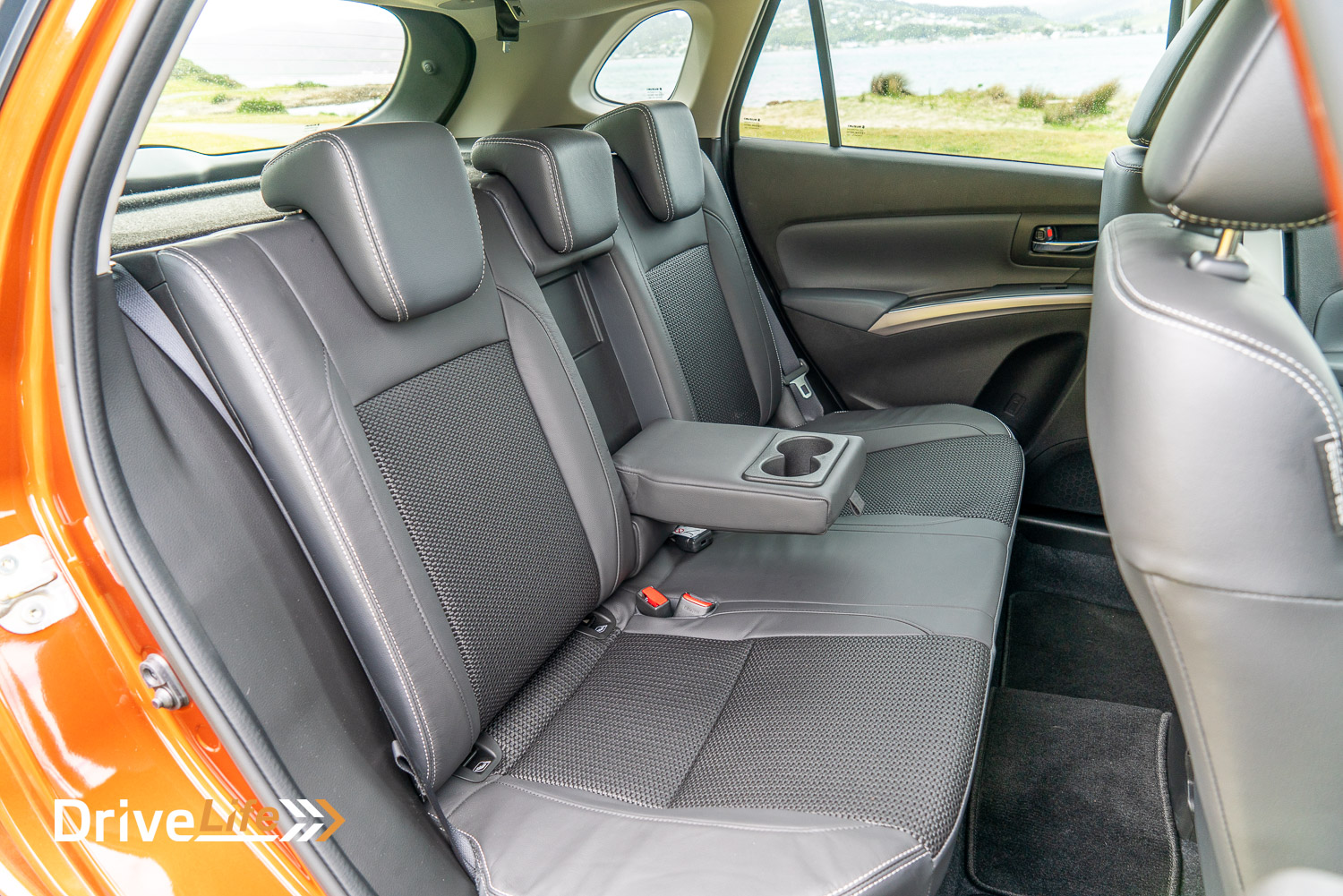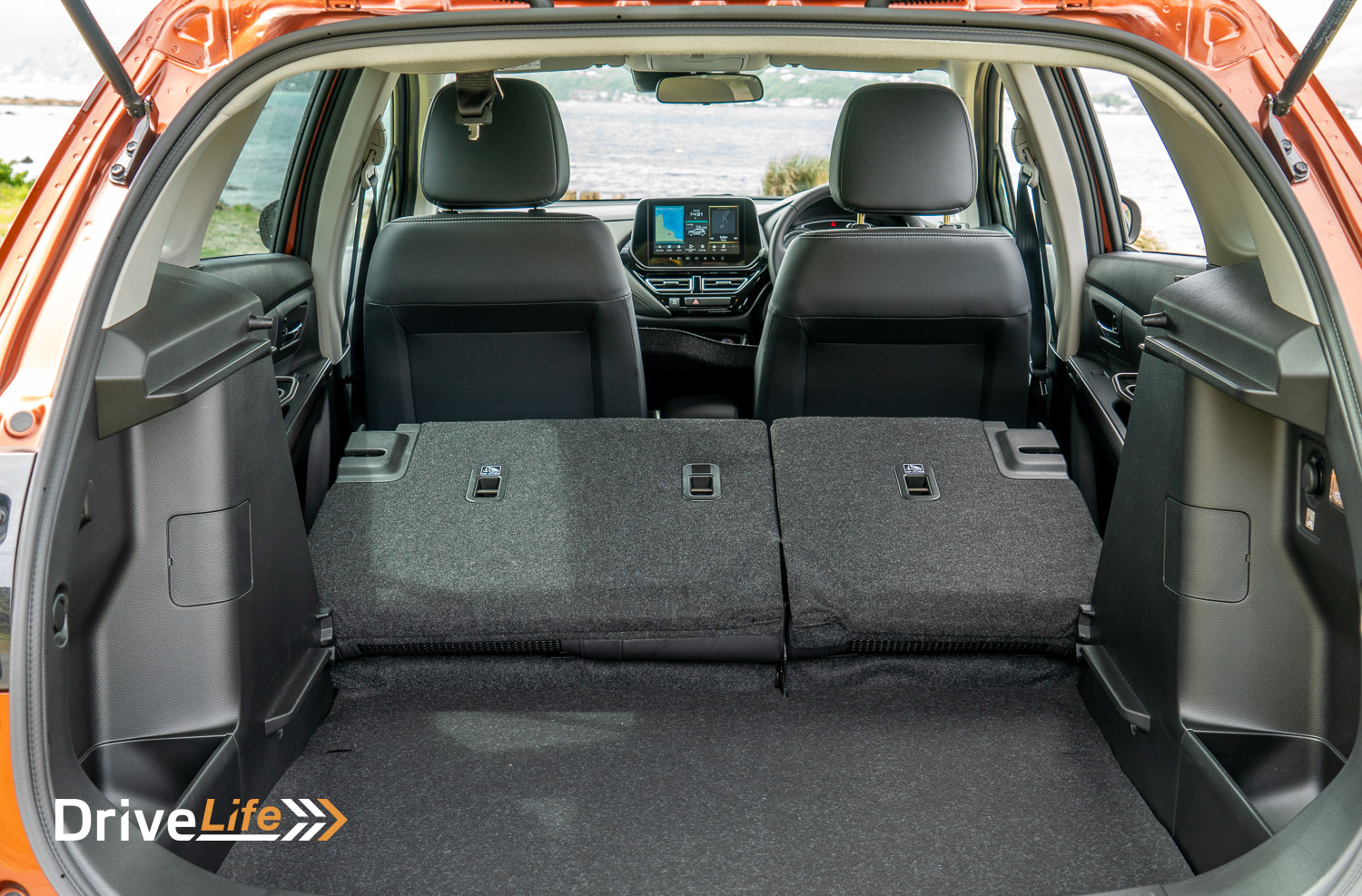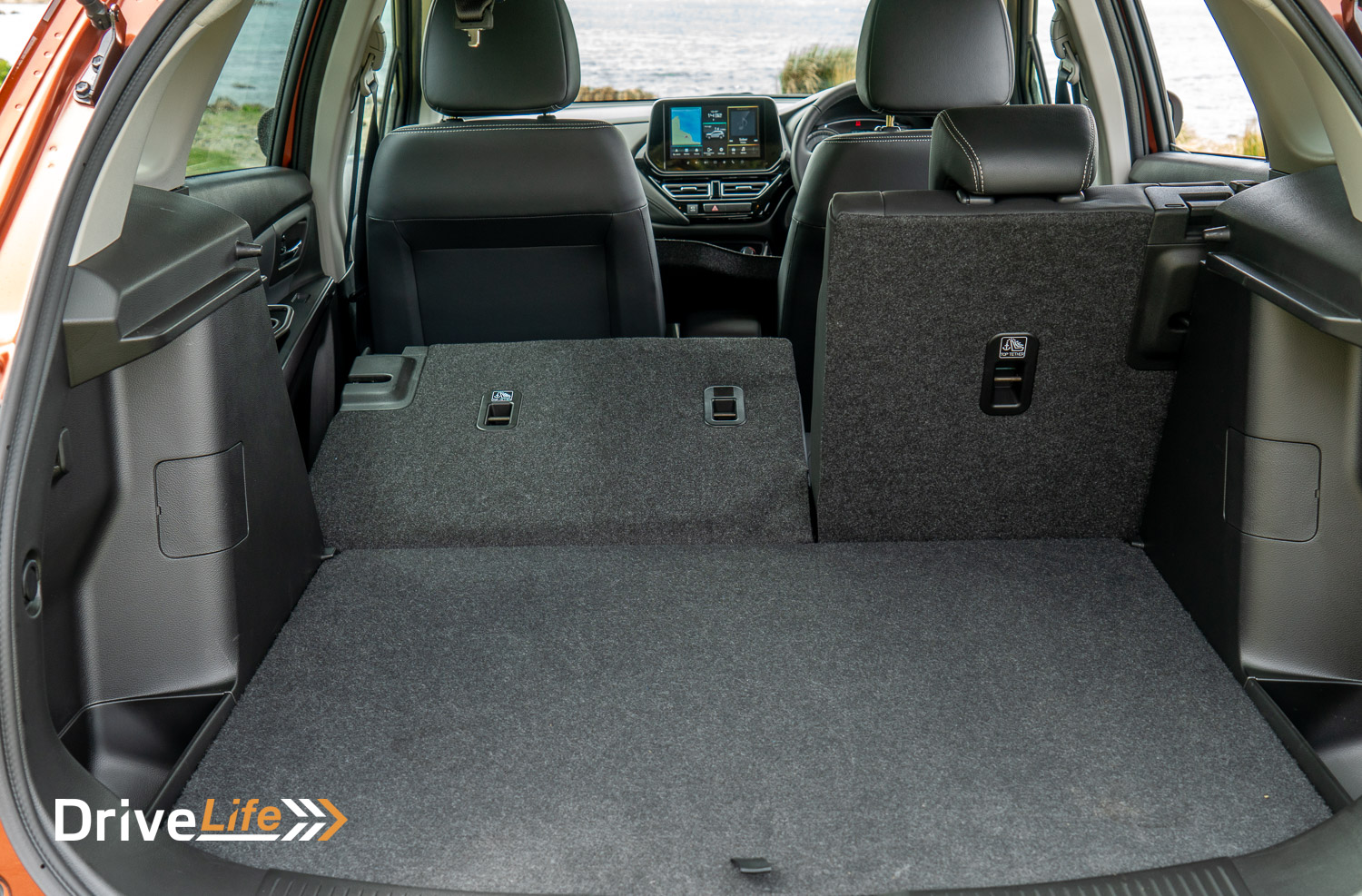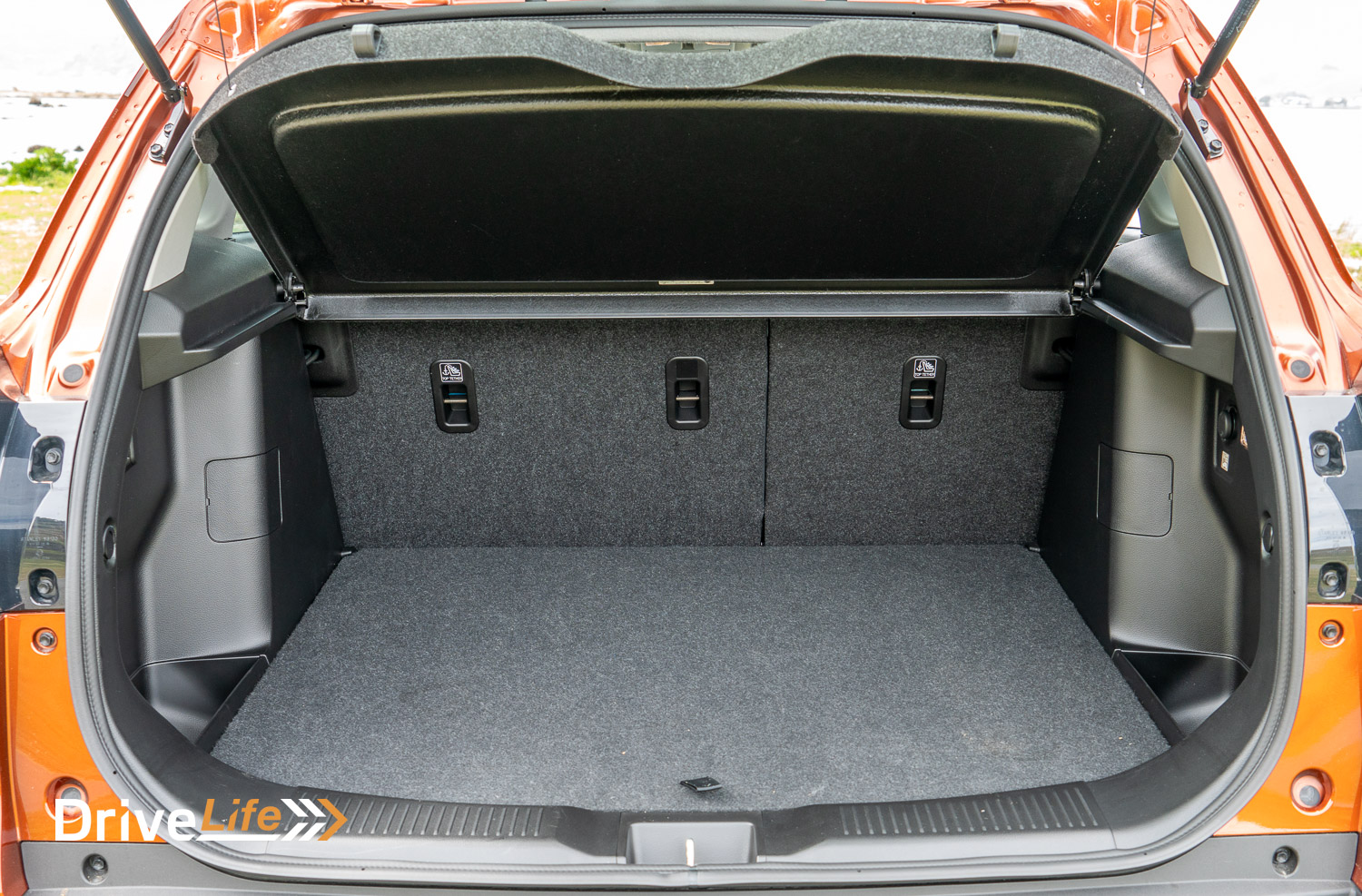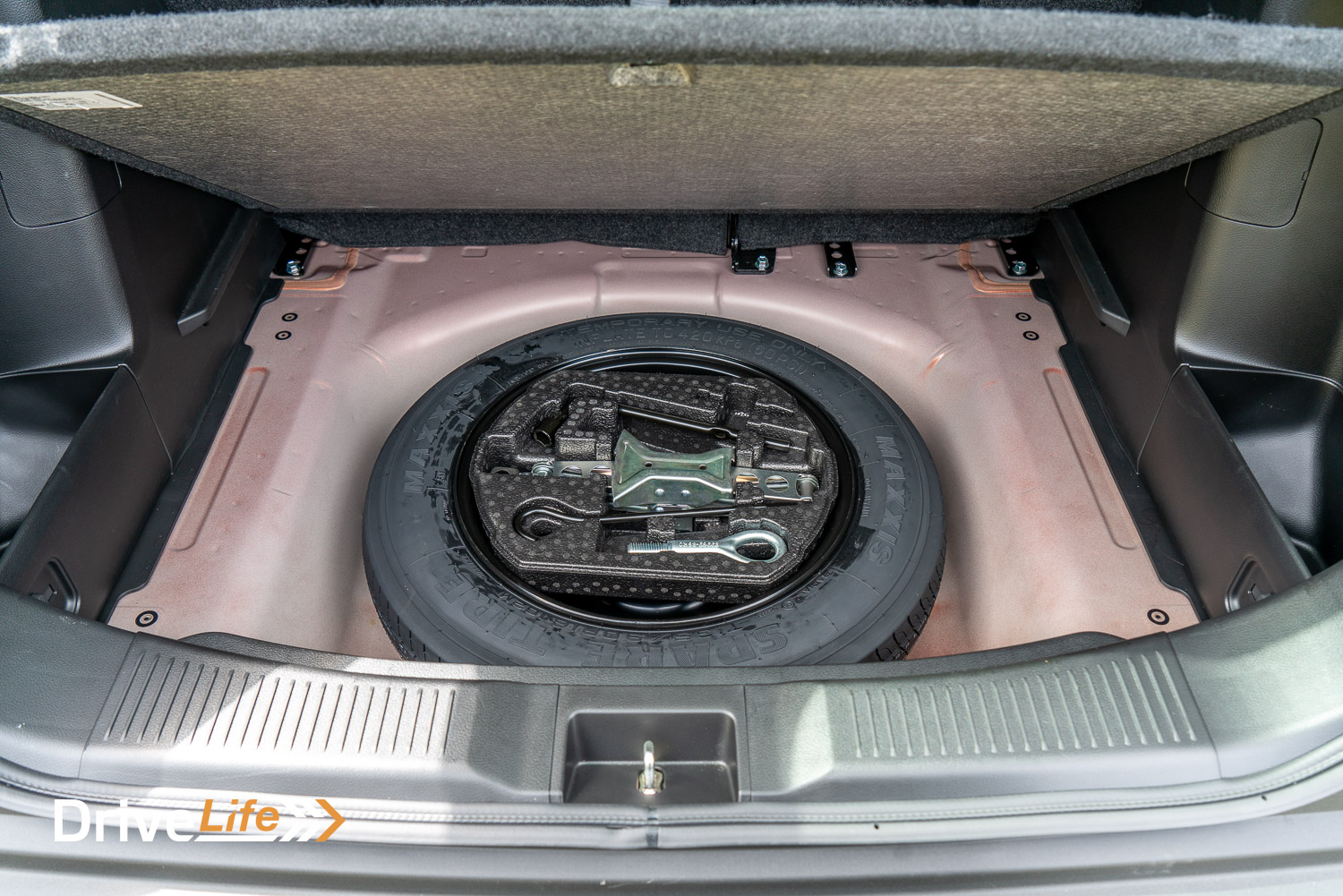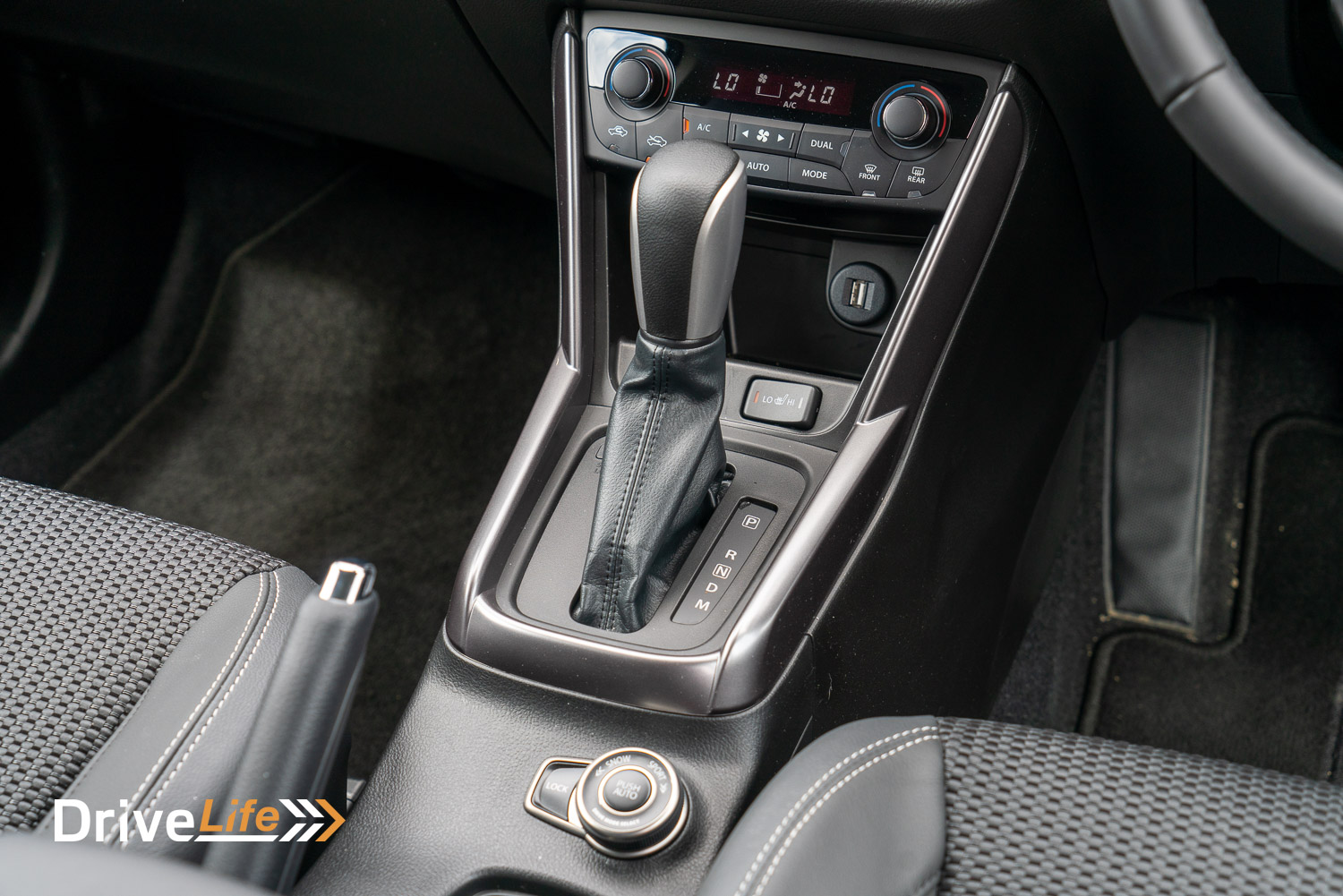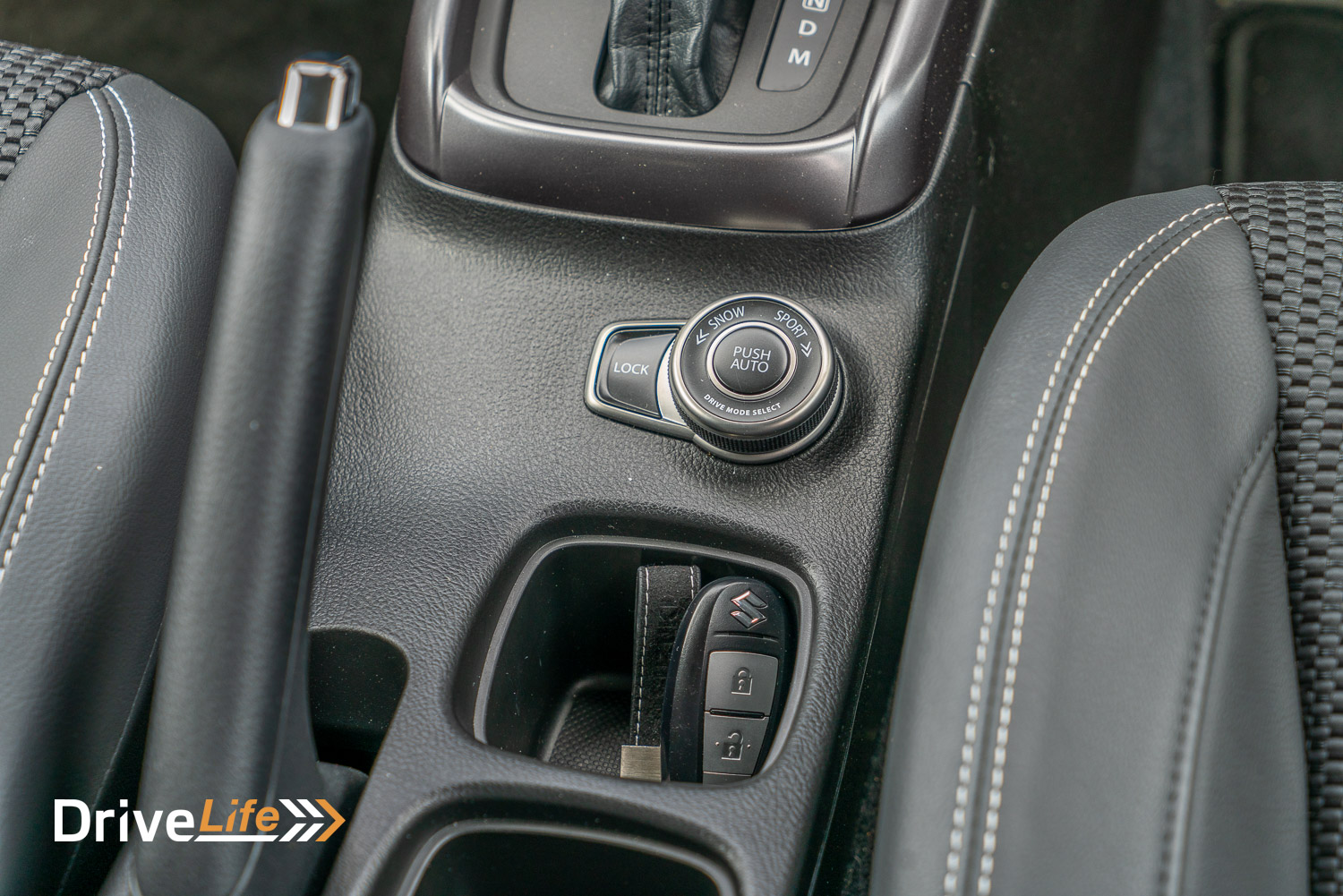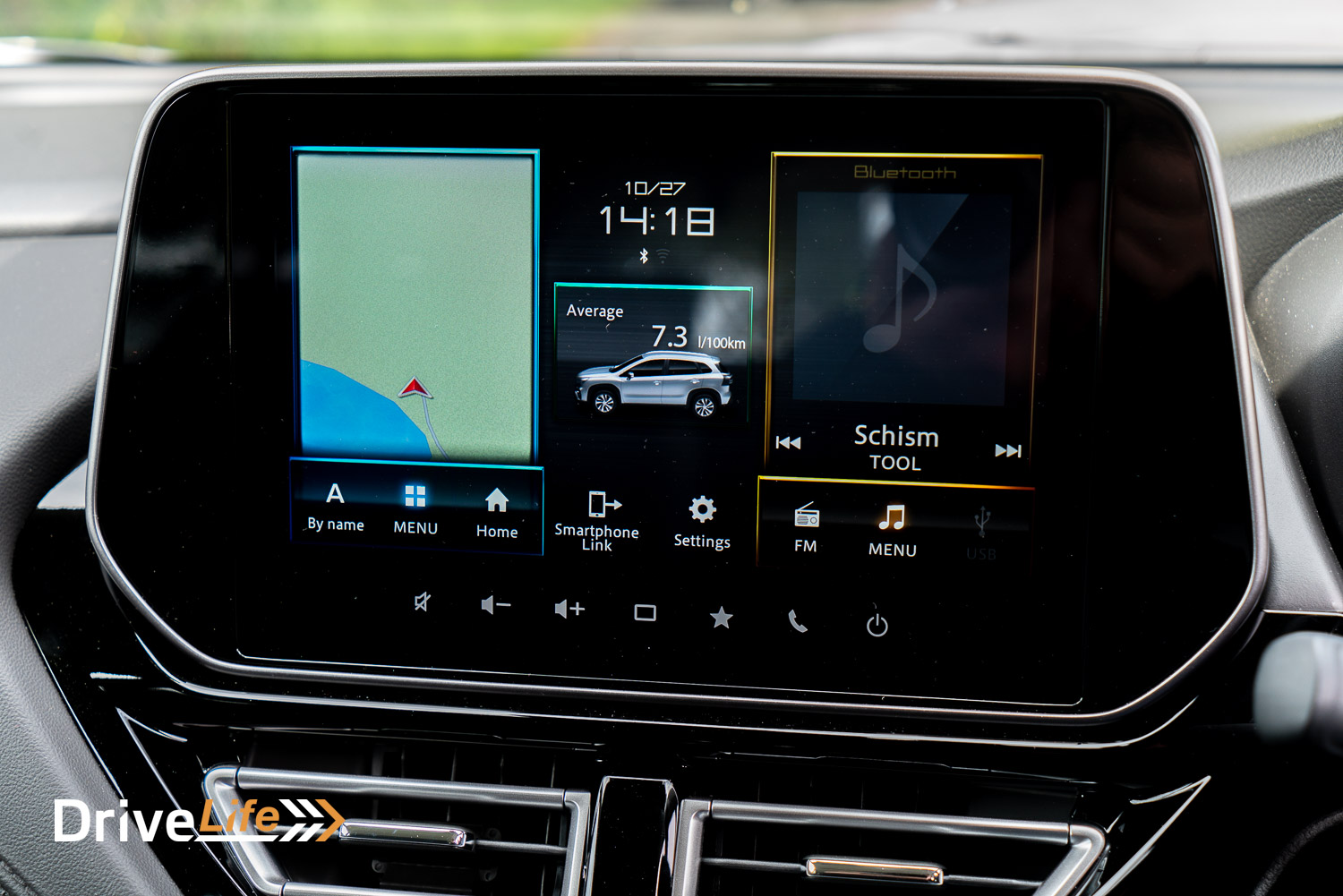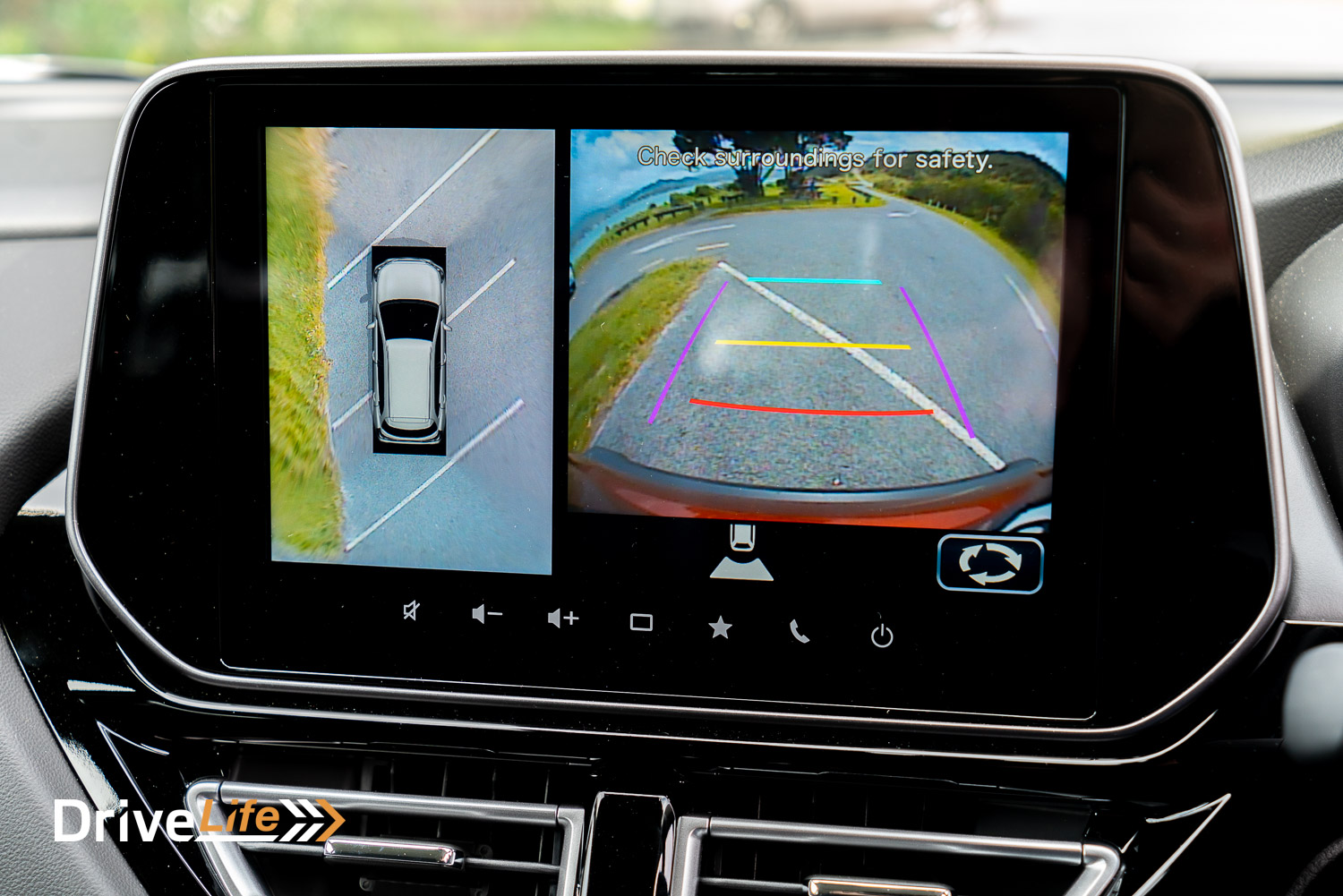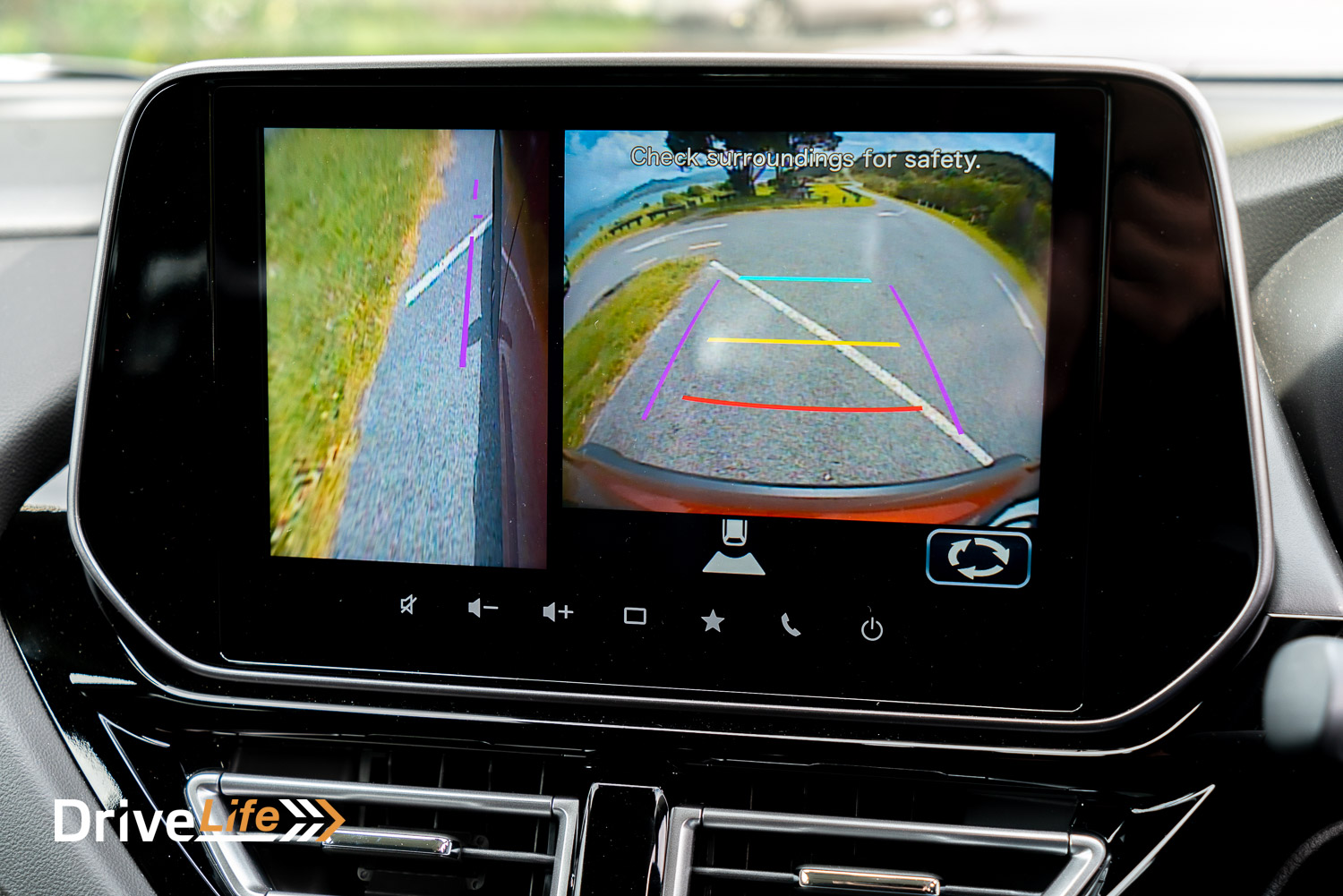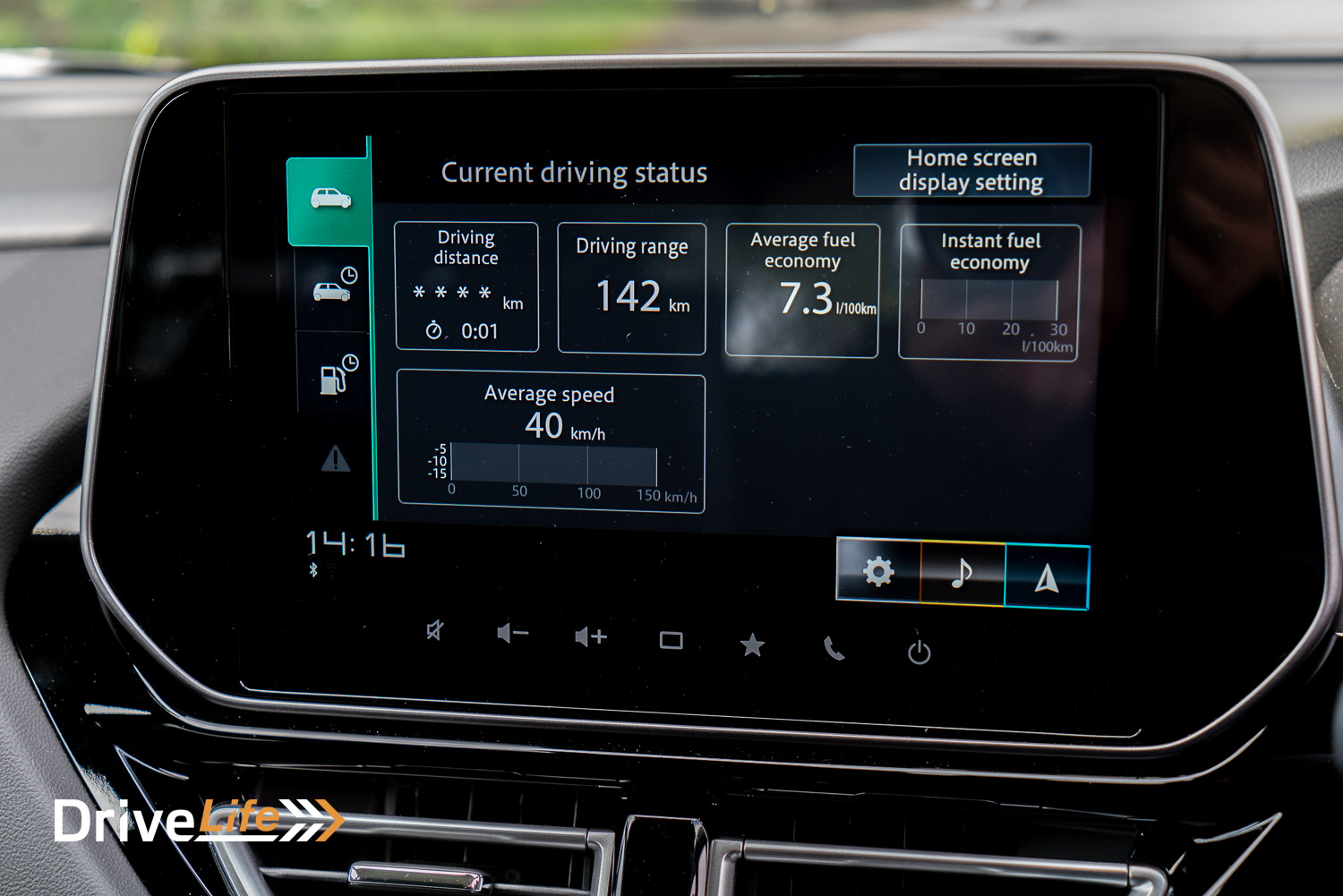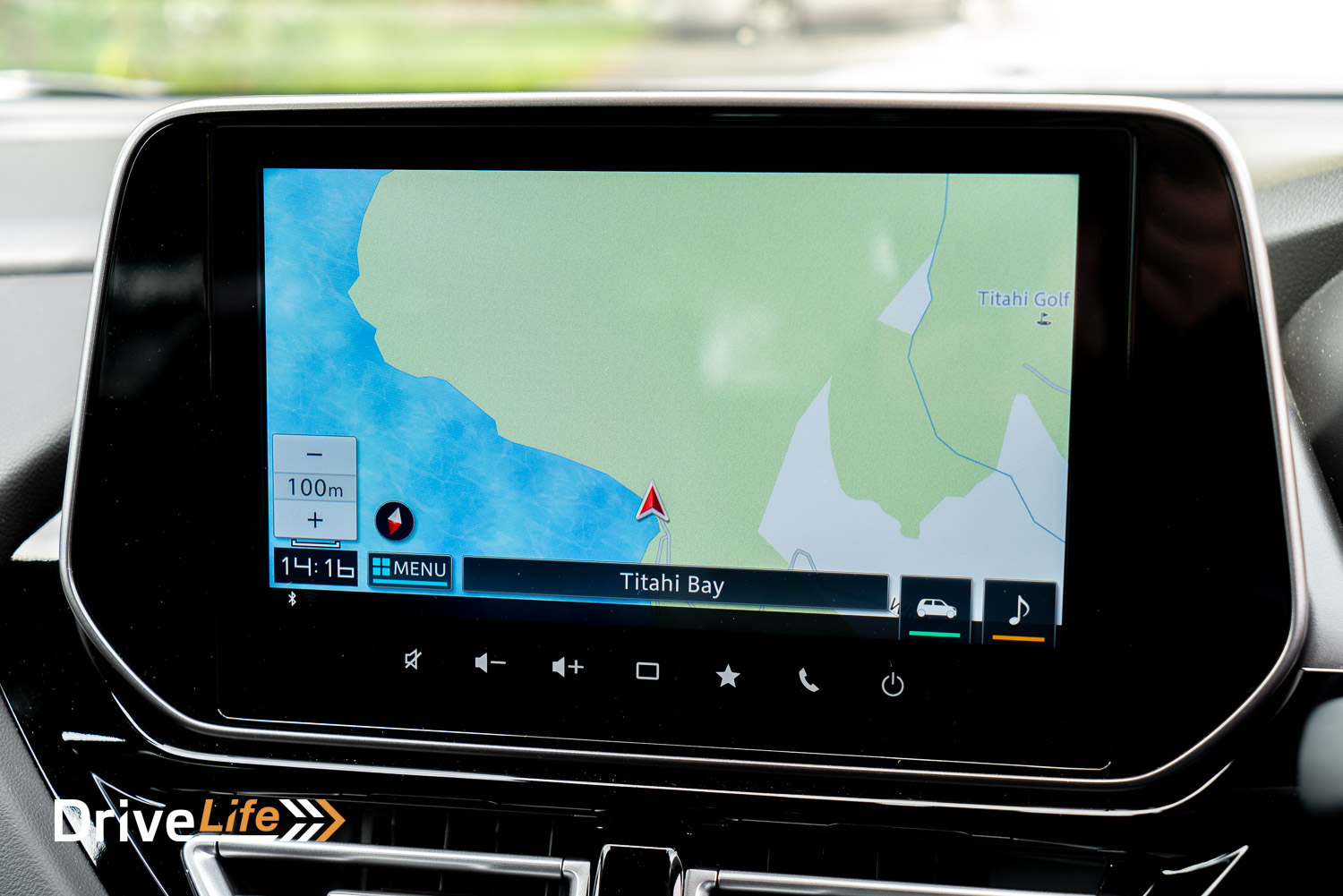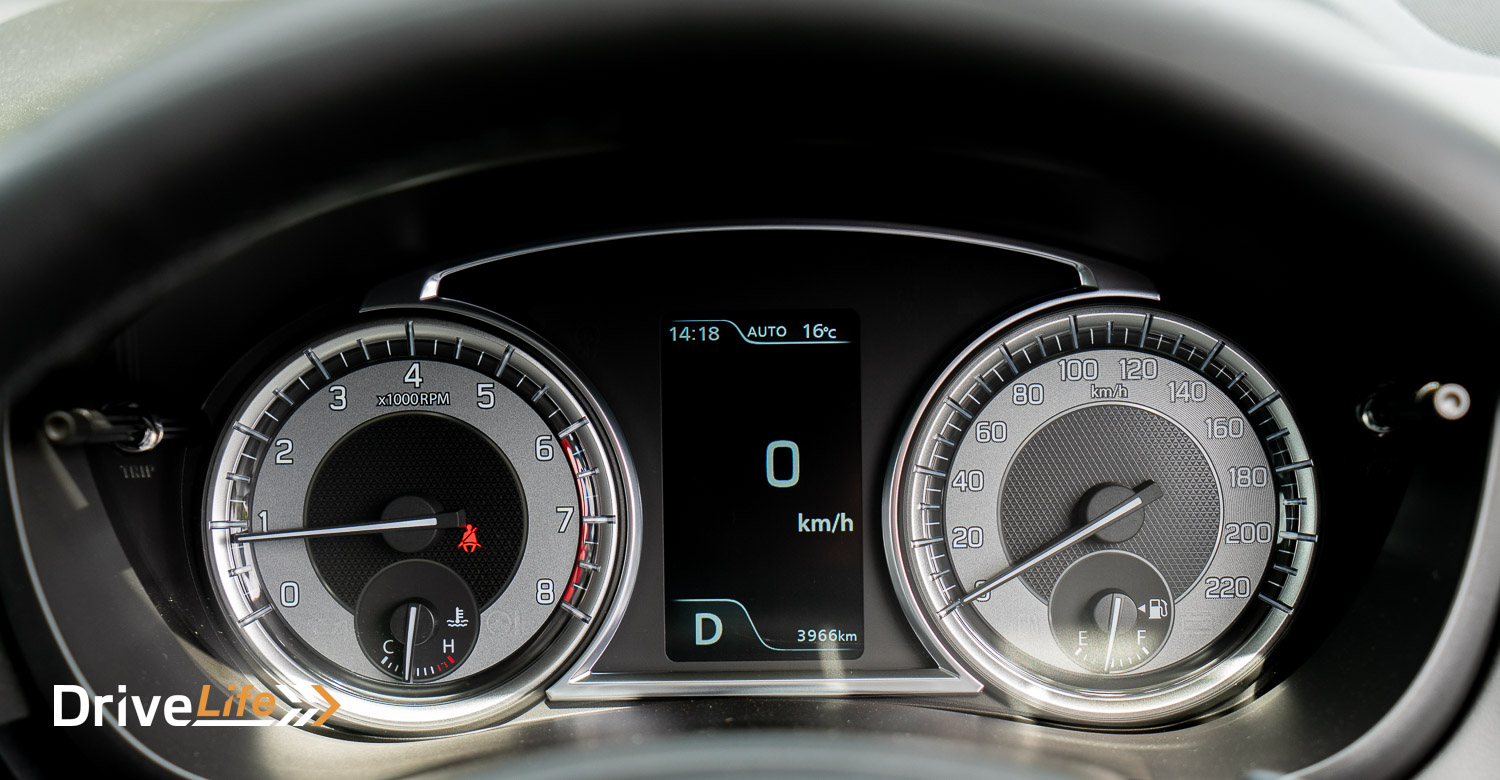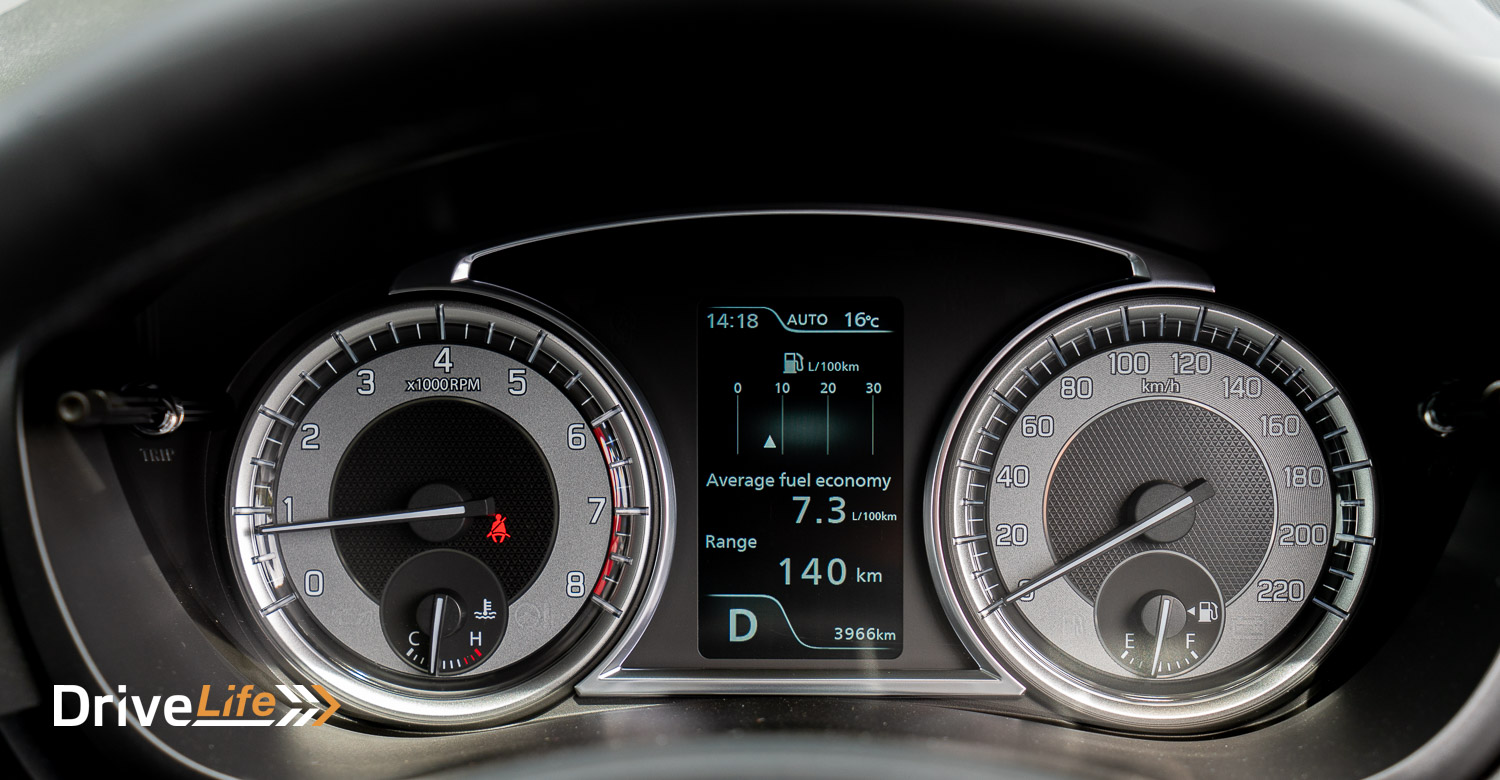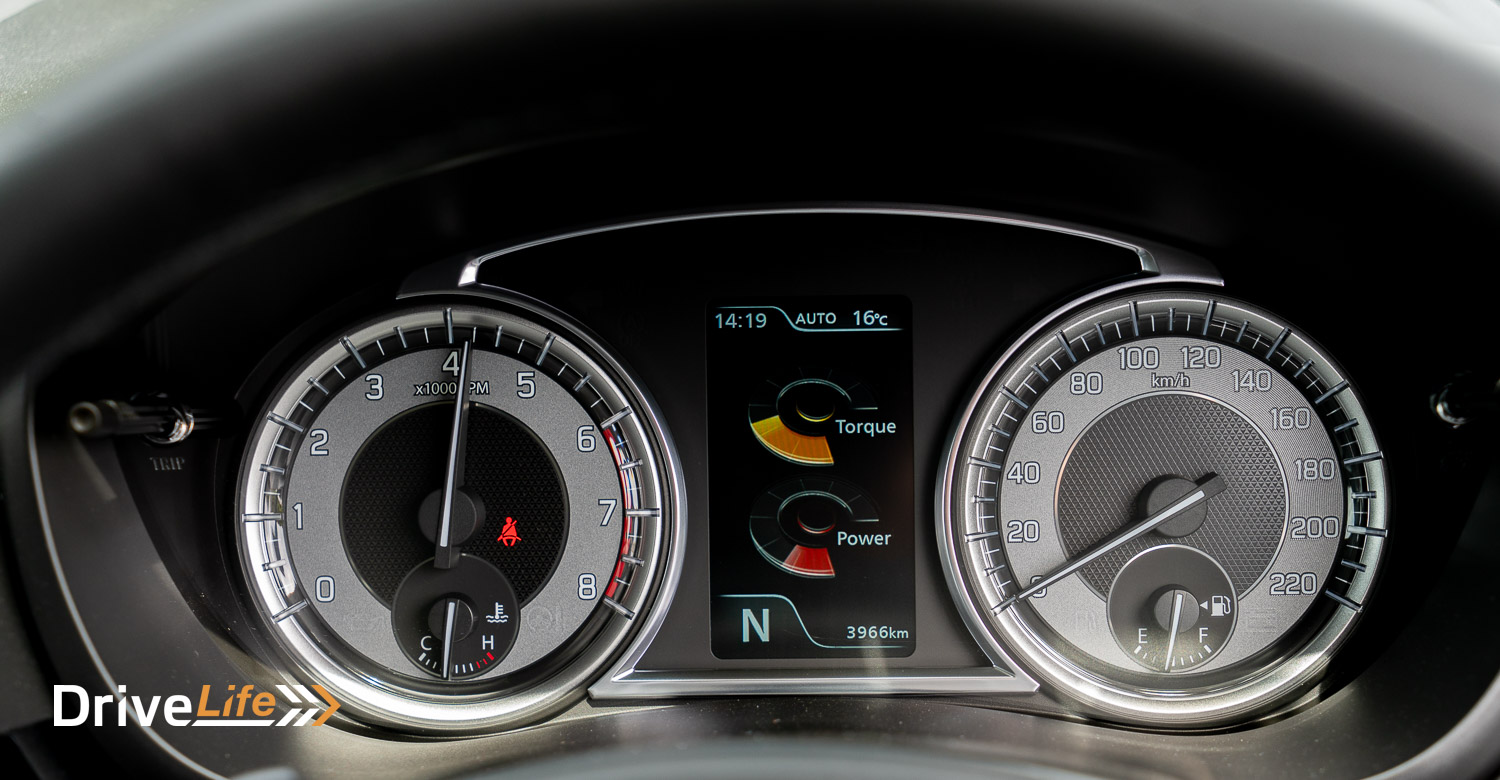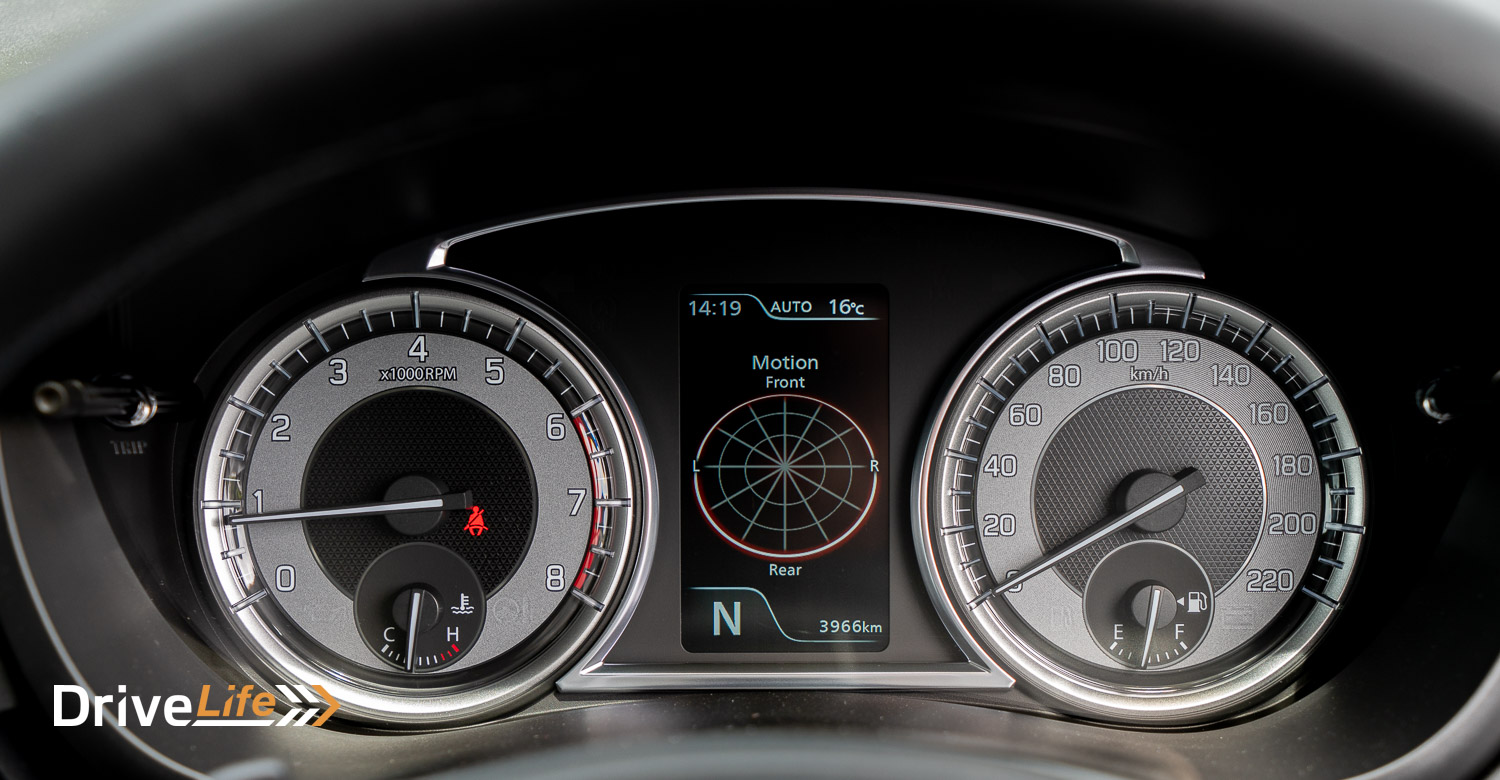When it comes to charismatic small cars, Suzuki knows their trade. Sure, the Suzuki line-up in New Zealand might only consist of a few models, but many of them are high achievers.
The S-Cross has always occupied tight space in Suzuki’s line-up, being the small family SUV that’s not quite as big as Vitara, yet offers some off-road capability. The first-generation S-Cross, or SX4 as it was known, struck a chord with New Zealand buyers for this reason. The second-generation S-Cross was competent, but it wasn’t a looker. If anything, it was the ugly duckling of the Suzuki line-up.
Today, we have the third generation S-Cross. Underneath, it’s similar to the previous car, but Suzuki has put it under the knife and scalpel and refreshed the tech to bring the S-Cross up to 2022 standards.
Are the fresh looks enough to allow the new S-Cross to win over Kiwi buyers in a saturated marketplace of small SUVs? We had the keys for a week to find out.
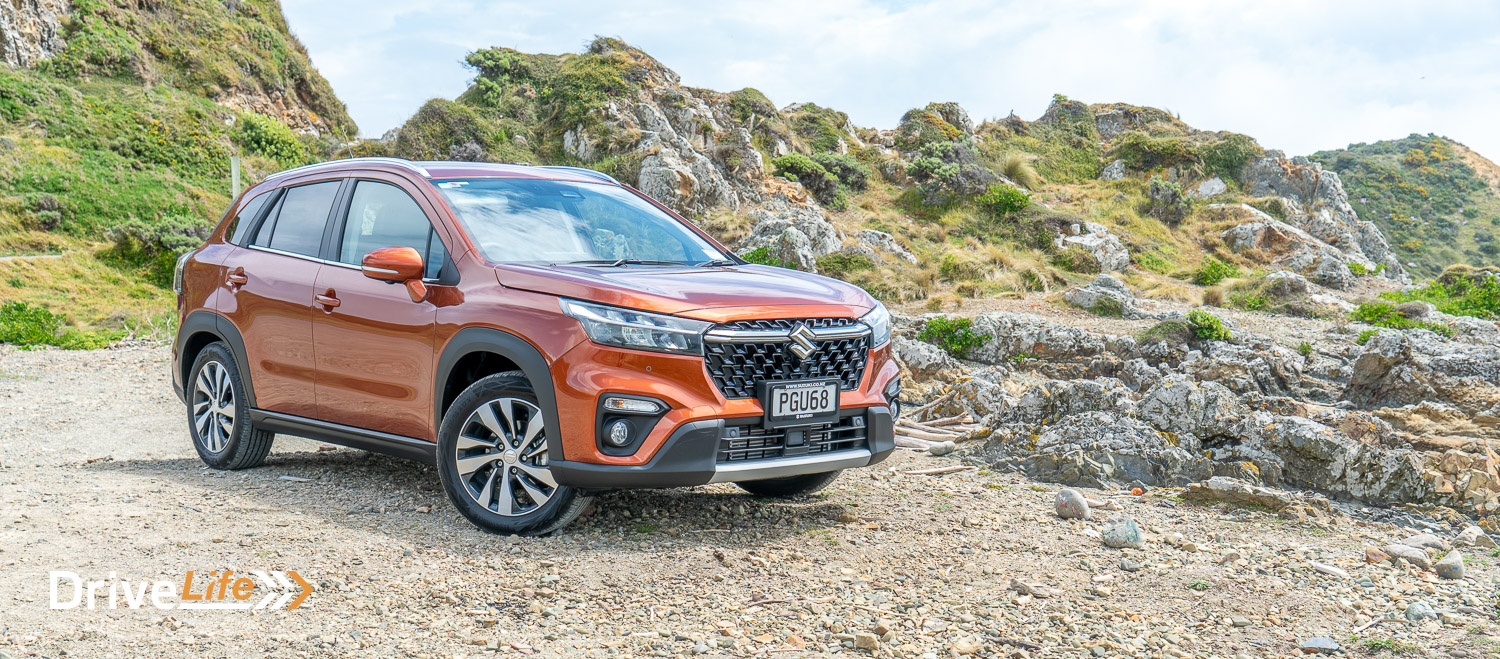
What We Like and Dislike About The 2022 Suzuki S-Cross JLX Turbo
| What we like | What we don’t like |
| Fabulous wee engine Decent ride quality Spacious and durable interior Exterior redesign is much better Some all-wheel drive versatility | Very similar to outgoing car inside and underneath Expensive for what it is Interior quality compared to competitors 95 Octane fueling requirement Annoying shifter pattern – needs manual lock-out |
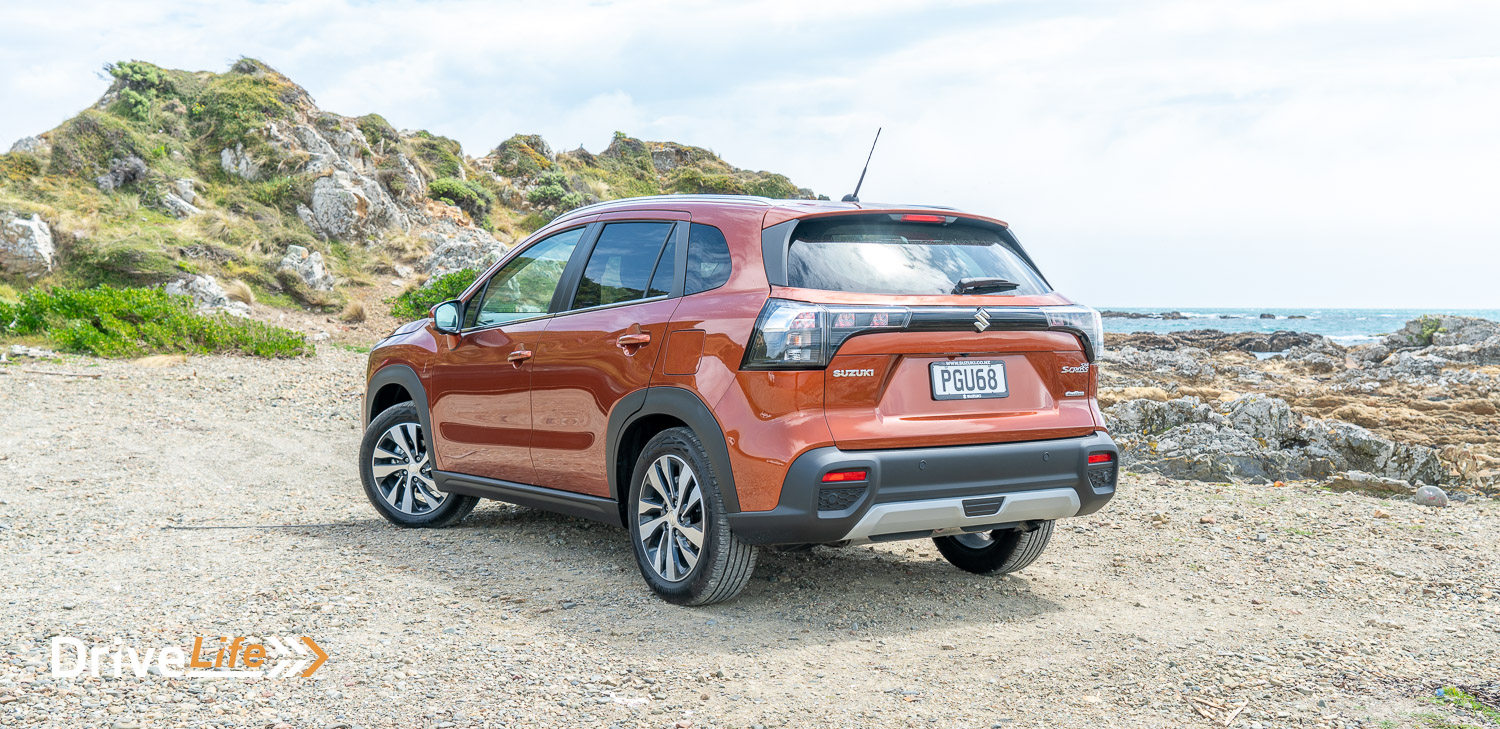
What’s In The 2022 Suzuki S-Cross Range?
There’s three models of the Suzuki S-Cross available for New Zealand buyers. The range starts with the JX Turbo 2WD, mid-spec is the JLX Turbo 2WD, and topping the range is the JLX Turbo AWD.
| Model | Price** |
| Suzuki S-Cross JX Turbo 2WD | $35,990 |
| Suzuki S-Cross JLX Turbo 2WD | $38,990 |
| Suzuki S-Cross JLX Turbo AWD | $40,990 |
The S-Cross range is powered by Suzuki’s 1.4L turbocharged four-cylinder Booster-jet engine, producing 103kW of power and 220Nm of torque. Power is delivered via a 6-speed automatic transmission.
The S-Cross is Clean Car neutral, meaning no rebate or fee applies at the time of writing.
2022 Suzuki S-Cross Equipment Highlights
- 17” Alloy Wheels
- 7” Infotainment
- Android Auto
- Apple Carplay
- Auto Lights
- Dual Control Heated Front Seats
- Dual Zone Climate Control
- Fabric Upholstery
- Front and Rear LED Lights
- Front and Rear Parking Sensors
- Heated Side Mirrors
- Keyless Entry and Push-Button Start
- LED Daytime Running Lights
- Privacy Glass
- Rain Sensing Wipers
- Reverse Camera
- Roof Rails
- Six speaker audio system
Standard safety equipment includes:
- 7-airbags
- Adaptive cruise control
- Dual Sensor Brake Support
- Electronic Stability Programme
- Hill hold control
- ISO-FIX x2
- Lane departure warning
- Speed limiter
- Weaving alert
Upgrading to the JLX 2WD gets you:
- 17” alloy wheels with polished finish
- 360-degree camera
- 9” infotainment w Satellite navigation
- Leather effect interior garnishes
- Leather upholstery and leather-effect weave
- Wireless Apple CarPlay
Move up to the JLX AWD, you gain:
- All-Grip AWD
- Blind Spot Monitoring
- Rear Cross Traffic alert
There are six colours available for the Suzuki S-Cross range, these are:
- Sphere Pearl Blue
- Energic Read Pearl
- Silky Silver Metallic
- Canyon Bronze Peral Metallic
- Cool White Pearl
- Titan Dark Grey Pearl Metallic
For more information on the S-Cross check out the Suzuki New Zealand website
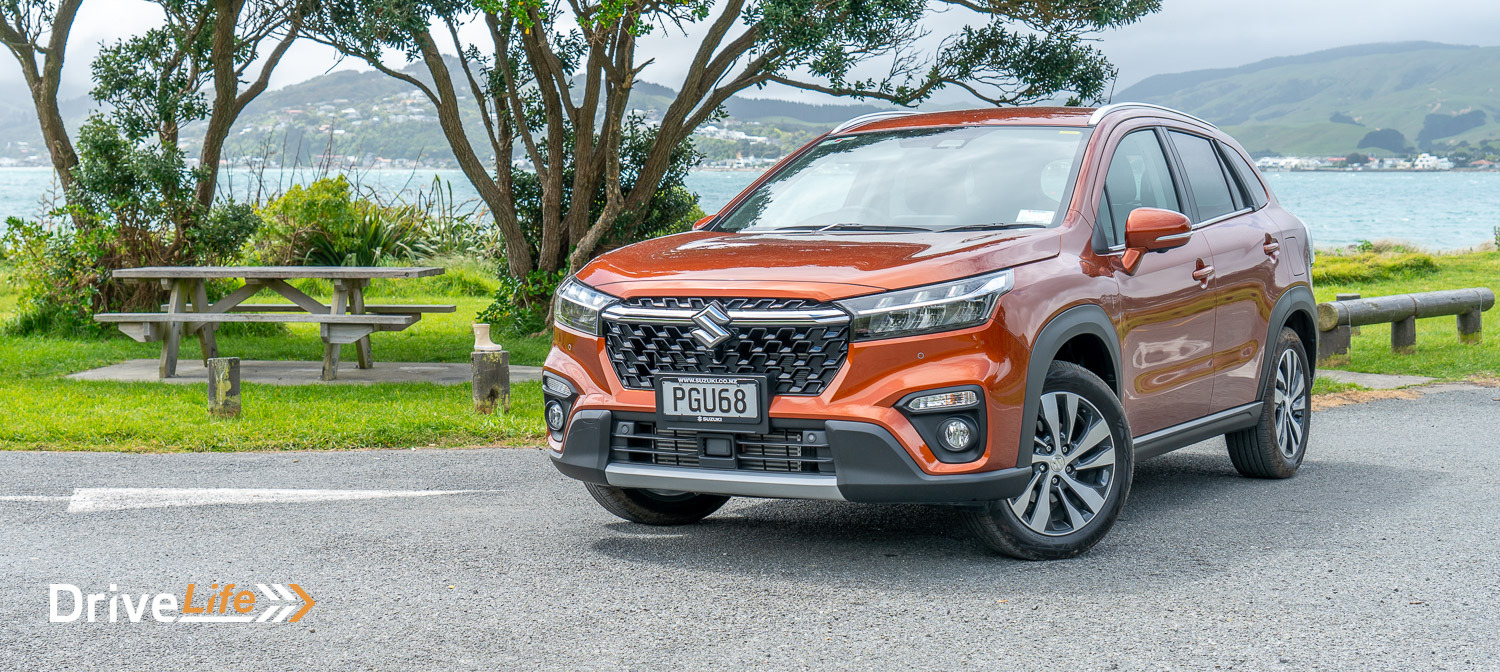
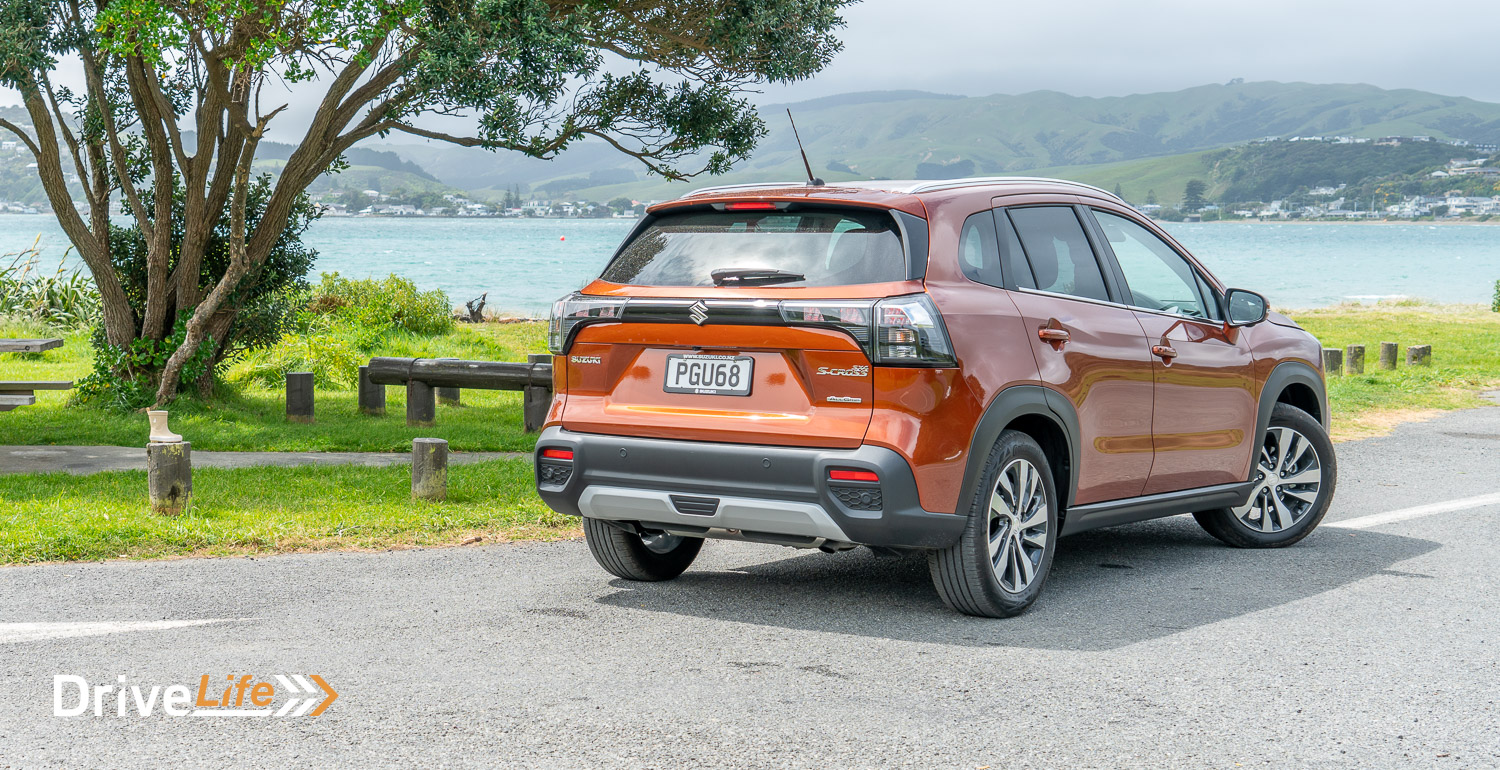
How Does The 2022 Suzuki S-Cross JLX Turbo Compare To Its Competition?
We’re comparing the top-spec competitors against the top spec S-Cross. However, if you’re seriously considering an S-Cross, you’d be better placed to compare the S-Cross with the mid-spec variants of the other brands. More details are provided in the review.
| Make/ Model | Engine | Power/ Torque kW/Nm | Seats | Fuel L/100km | Towing Capacity | Boot Space, litres | Price (excl CCP) |
| Peugeot 2008 GT (FWD) | 1.2-litre turbocharged 3-cylinder | 114/270 | 5 | 6.8 | 1200 | 434 | $48,990 |
| Skoda Kamiq Monte Carlo (FWD) | 1.5-litre turbocharged 4-cylinder | 110/250 | 5 | 5.5 | 1250 | 400 | $47,990 |
| Kia Seltos Limited (AWD) | 1.6-litre turbocharged 4-cylinder | 130/265 | 5 | 8.5 | 1250 | 433 | $47,490 |
| Subaru XV Premium (AWD) | 2.0-litre horizontally opposed 4-cylinder | 115/196 | 5 | 7.0 | 1400 | 310 | $45,990 |
| Nissan Juke Ti (FWD) | 1-litre turbocharged 3-cylinder | 84/180 | 5 | 5.8 | 1250 | 422 | $45,990 |
| Mitsubishi Eclipse Cross VRX (AWD) | 1.5-litre turbocharged 4-cylinder | 112/254 | 5 | 7.7 | 1600 | 374 | $45,990 |
| Hyundai Kona 1.6T Elite (AWD) | 1.6 litre turbocharged 4-cylinder | 130/265 | 5 | 6.7 | 1250 | 361 | $45,490 |
| Toyota C-HR Limited (FWD) | 1.8-litre 4-cylinder hybrid | 90/142 | 5 | 4.8 | N/A | 318 | $44,290 |
| Toyota Yaris Cross Limited Hybrid (FWD) | 1.5 3-cylinder Hybrid | 85/120 | 5 | 4.2 | 400 | 390 | $43,290 |
| Honda HR-V Sport NT (FWD) | 1.8-litre 4-cylinder | 105/172 | 5 | 6.9 | 800 | 437 | $42,990 |
| Mazda CX-3 Limited (FWD) | 2.0-litre 4-cylinder | 110/195 | 5 | 6.7 | 1200 | 264 | $42,590 |
| Suzuki S-Cross JLX Turbo | 1.4-litre turbocharged four-cylinder | 103/220 | 5 | 6.3 | 1200 | 430 | $40,990 |
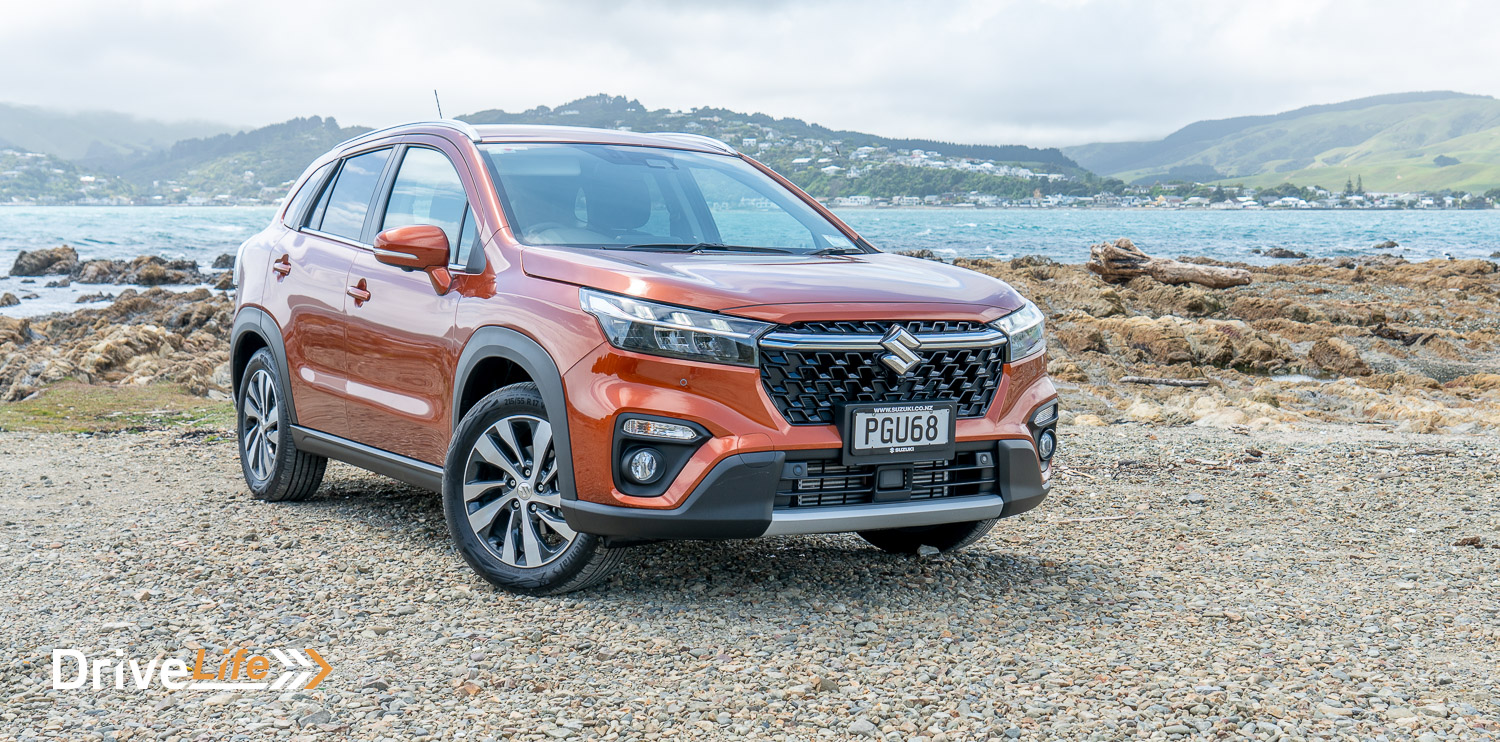
First Impressions Of The 2022 Suzuki S-Cross JLX Turbo
Well, it’s better, isn’t it? The blobby, people-carrier styling of the old S-Cross has been sculpted into a boxier, SUV-shaped body. It’s a considerable improvement, without question.
Although the dimensions are the same, the new blockier front end and larger grille makes the new S-Cross appear bigger than the outgoing S-Cross. Again, it’s more SUV-like..
The rear has also been updated, with a new tail light bridge across the tailgate, a larger overhanging spoiler and rear bumper with more plastic cladding – coz SUV, ya know.
The fresh styling is an improvement, and it will certainly not offend anyone. However, the S-Cross still does feel a tad anonymous in the small SUV world. Fortunately, the Cayon Bronze Pearl Metallic paint does embolden the S-Cross a bit, making it feel more confident. I’d definitely be ticking this box on the spec list, that’s for sure.
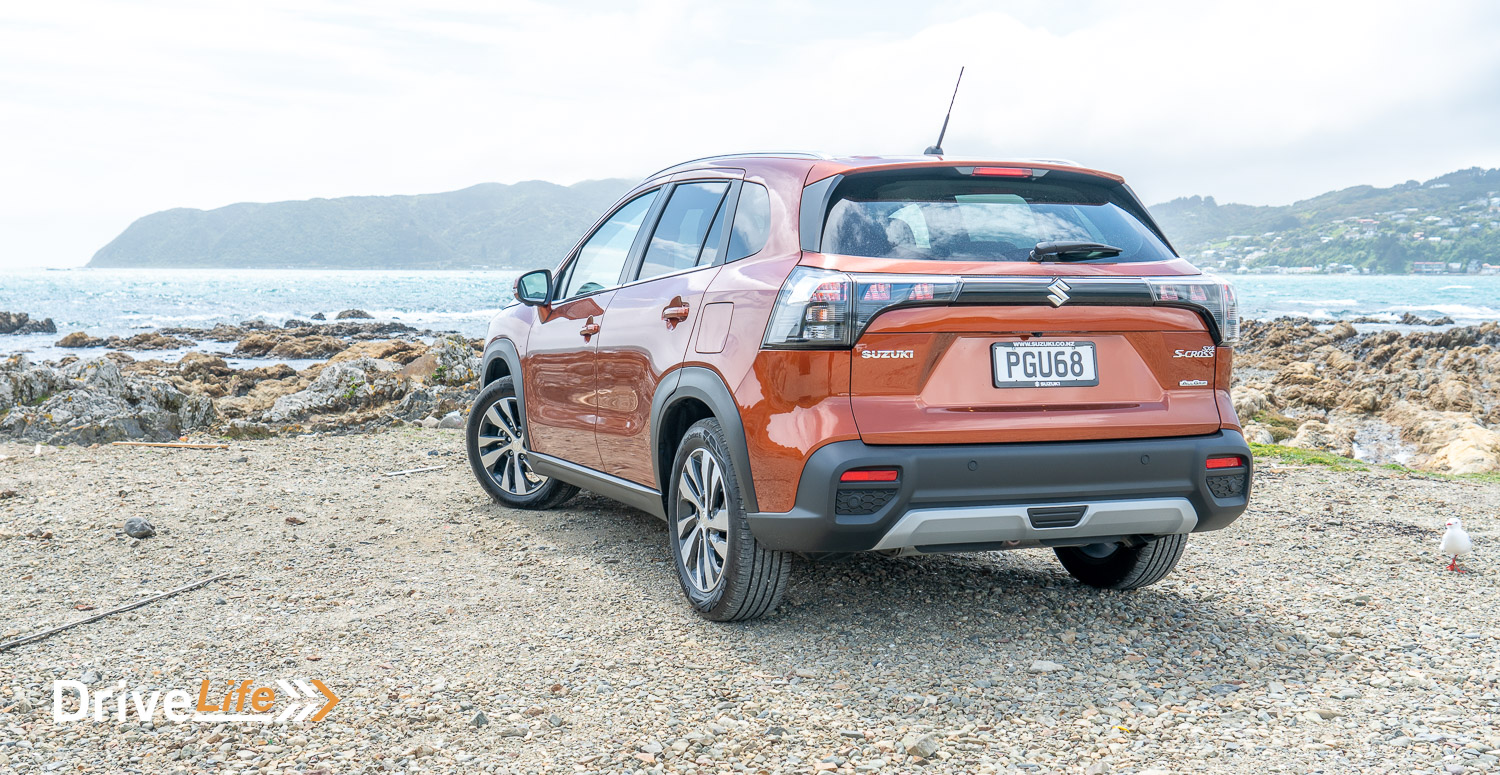
What’s The Interior Like In The 2022 Suzuki S-Cross JLX Turbo?
There are three attributes you’ll notice once inside the new S-Cross. The first of those attributes is space. Suzuki calls themselves the small car experts, but their cars can certainly accommodate the larger folk. John felt the same when he went to the launch of the S-Cross back in July – he’s 6’6 by the way..
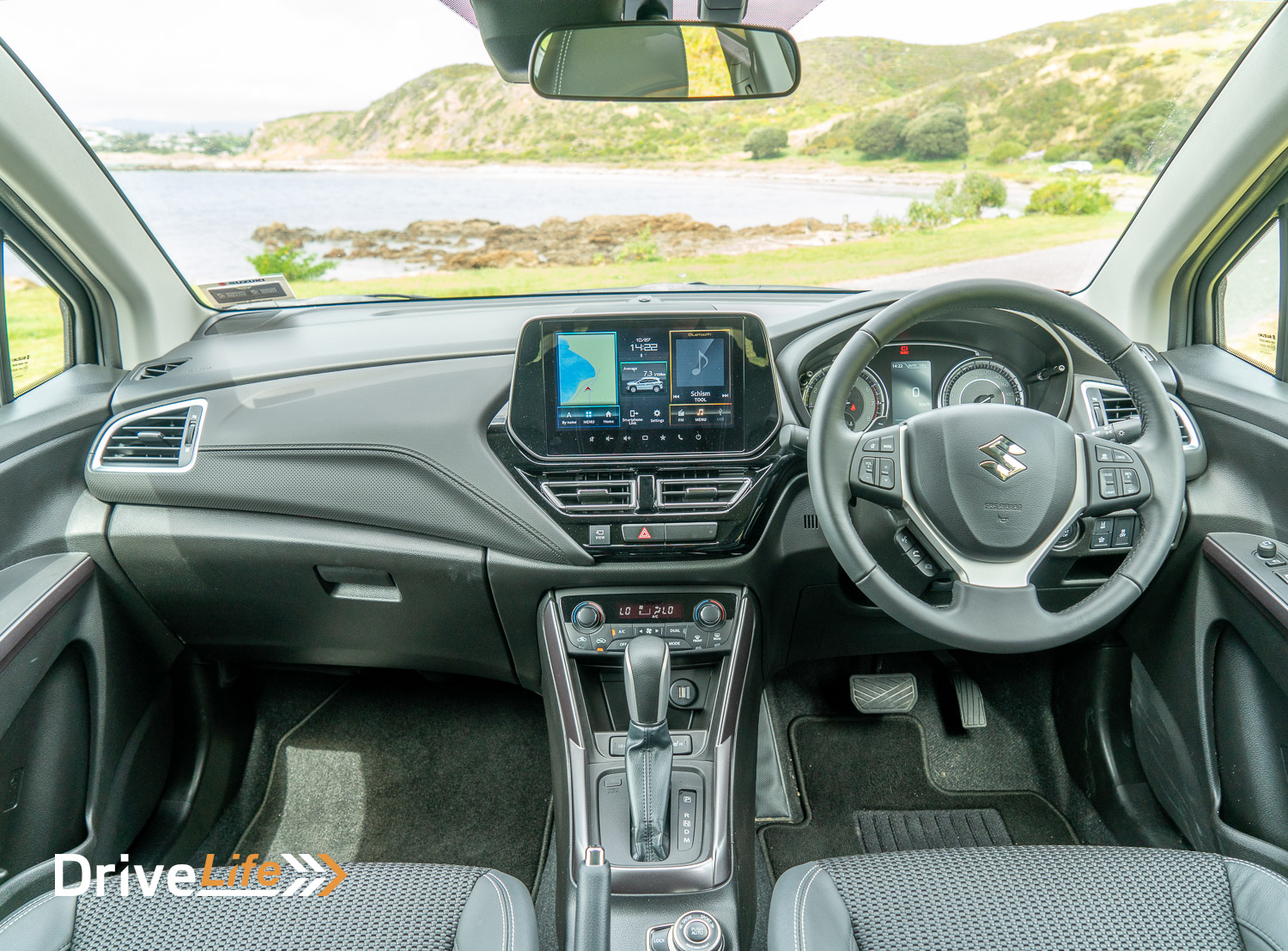
There’s plenty of room inside to spread out and get comfortable. I mightn’t be as tall as John, but my legs do favour seats which can accommodate a wider inseam, and I had no issues getting comfortable in the front.
The driving position offers plenty of configurability, and the door sills are low, meaning the outward visibility is excellent. The seats themselves are a fairly ordinary number, but they get a passing mark for overall comfort and back support. Importantly, they’re wide enough to accommodate my rugby thighs. Rear seat passengers are also well accommodated. I had plenty of space in the back, without needing to change the driving position.

The S-Cross’ boot space is also among the best-in-class, offering a spacious 440 litres. Pop the rear seats down, the space expands to 1,230 litres.
The second attribute you may only notice if you’re familiar with the old S-Cross, or anything else in Suzuki’s line-up. That attribute is similarity.
There are quite a lot of carry-over pieces between the old and new S-Cross. Among them are the steering wheel, climate control module, side air vents, door cards, door switches and the gear lever. Most of the plastics are the same, and even the seats look suspiciously similar, despite the fact they’re wearing different upholstery.
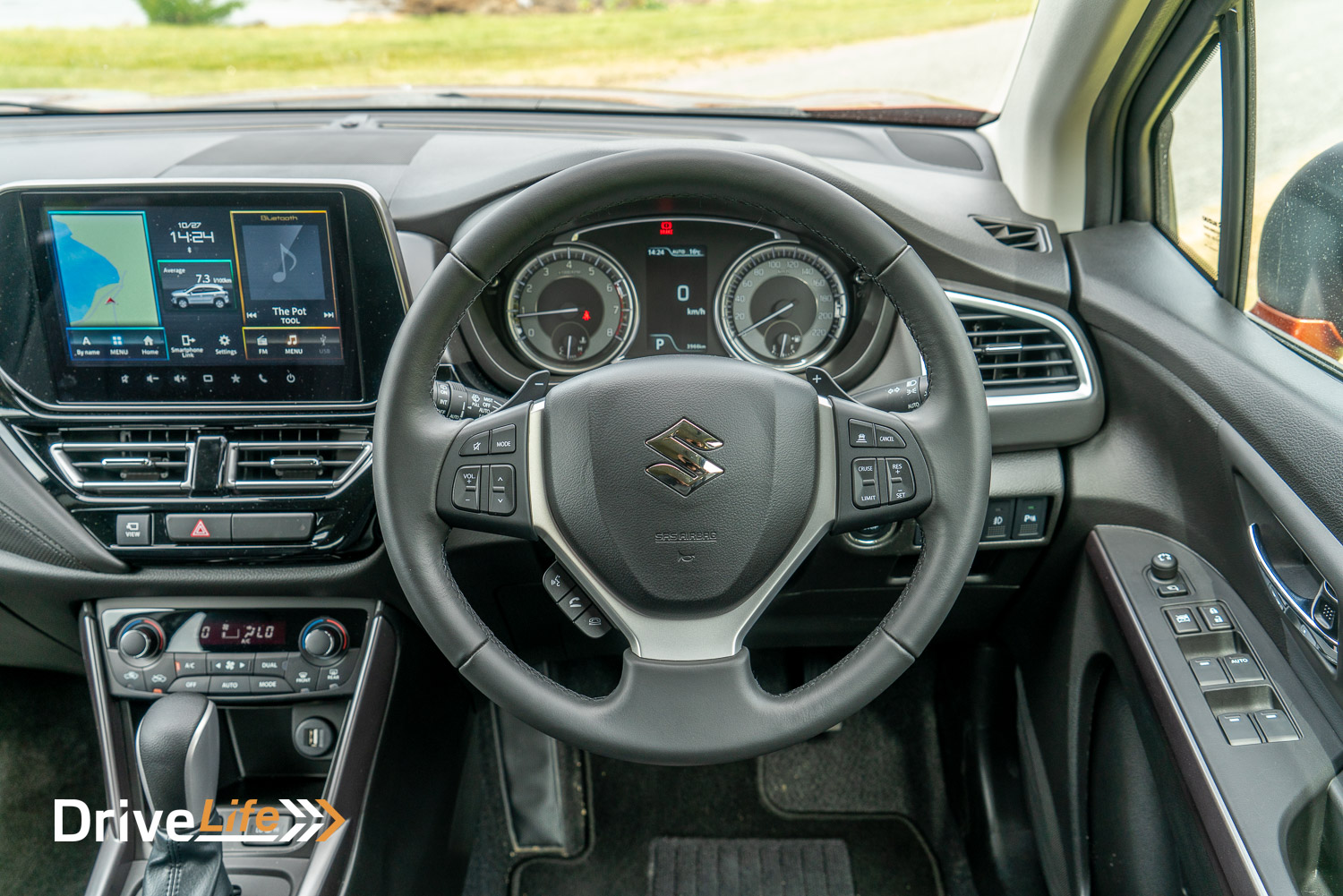
Speaking of the gear-lever, the shifter gate is just a straight-line pattern. Manual mode (or paddle shift mode) has no lock-out and is right at the bottom of the tree. I lost count of the number of times I threw the S-Cross into Manual rather than into Drive.
Although Suzuki might have used the Ctrl-C button a bit too liberally when designing the new S-Cross, they have made some enhancements. Among the new features is an upgraded 9’’ infotainment system, with a freshly redesigned user interface. It’s a welcome change from the old one, which was starting to show its age. The new interface has large icons, is simple to navigate, and has good-quality resolution. It’s not particularly quick to respond, but it won’t test your patience.
As part of the tech package upgrade, Suzuki has also bundled in several exterior cameras. The cameras are useful, despite not being particularly high quality. The same cameras can also stitch together a 360-degree view, which projects on-screen at start-up. However, it’s not an interactive 360-degree view, like in an MG ZS EV, meaning its usefulness is limited.
The system is paired with a 6-speaker audio system, which isn’t anything particularly special in terms of sound quality. However, few competitors do better, so it gets a passing mark.
The third attribute is something Suzuki would be less proud of. Compared to competitors, the interior of the S-Cross does feel a bit cheap.
It’s not that the S-Cross does a bad job, but the small SUV segment has improved considerably in the past 5 years. Considering that Suzuki mostly copied the interior of the previous car, it doesn’t match the modern designs found in the likes of the Mazda CX-3 or the Skoda Kamiq.
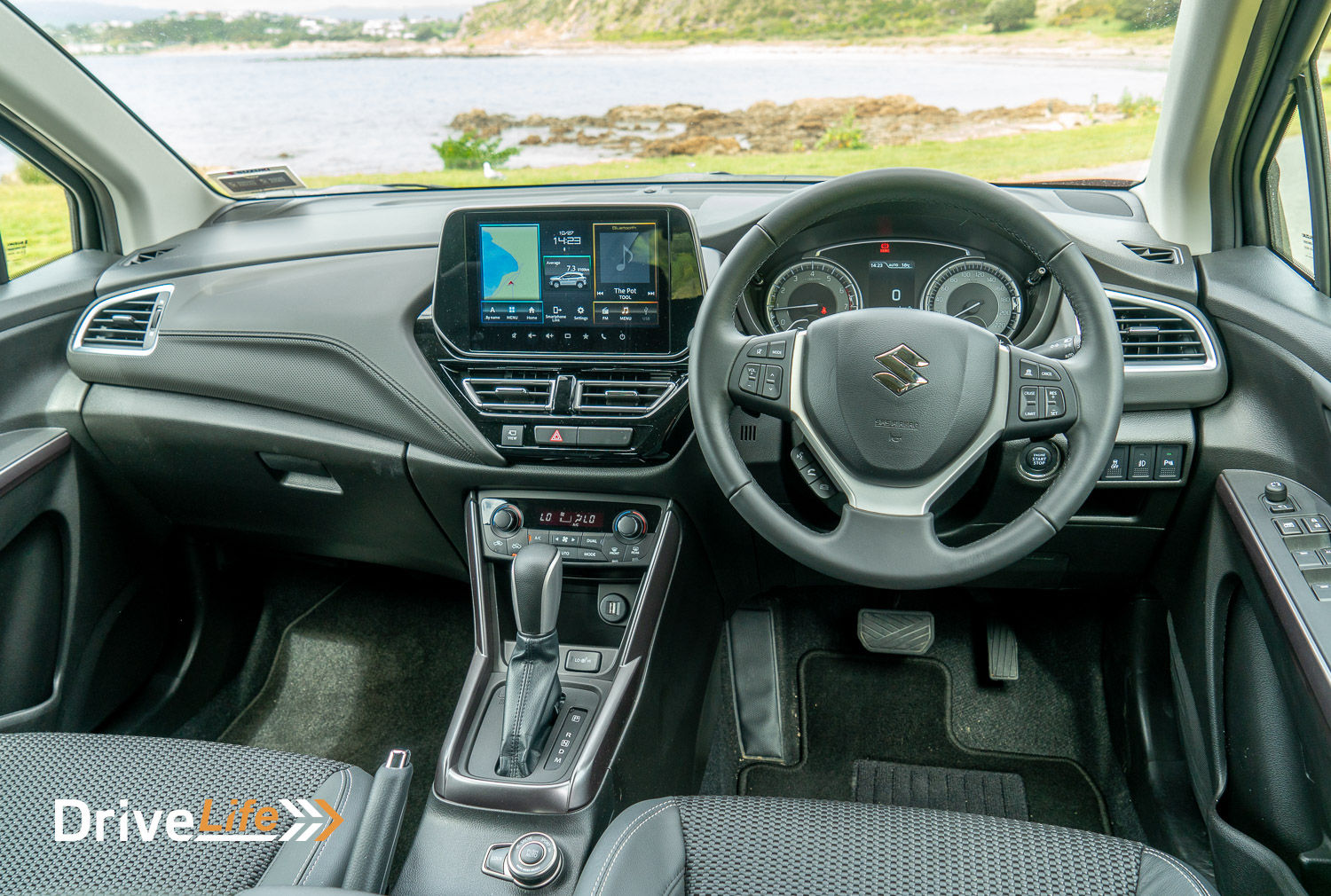
Also, some of the material choices from Suzuki are a bit low rent. Scratchy, hard plastics and piano black plastics are the primary culprits. Even the woven leather seat upholstery has an odd texture – it almost feels plasticky.
Sure, I am being a tad nit-picky, but I was expecting better for the price tag.
However, the upshot of all of Suzuki’s material choices is their durability. The S-Cross’ interior does have a certain hardiness – enough to stand up to some abuse, anyway.
Because of this, the S-Cross won’t be the sort of vehicle that you’ll be precious about getting dirty. Taking the dog to the beach? Kids finished rugby? Just throw ’em in, and vacuum it later. She’ll be right. I can imagine this will earn the S-Cross some endearment from those who actually use their SUVs for SUV activities, and I admit, I do appreciate the S-Cross for it. I’d cringe at the prospect of muddying up the interior of a Kamiq, that’s for sure.
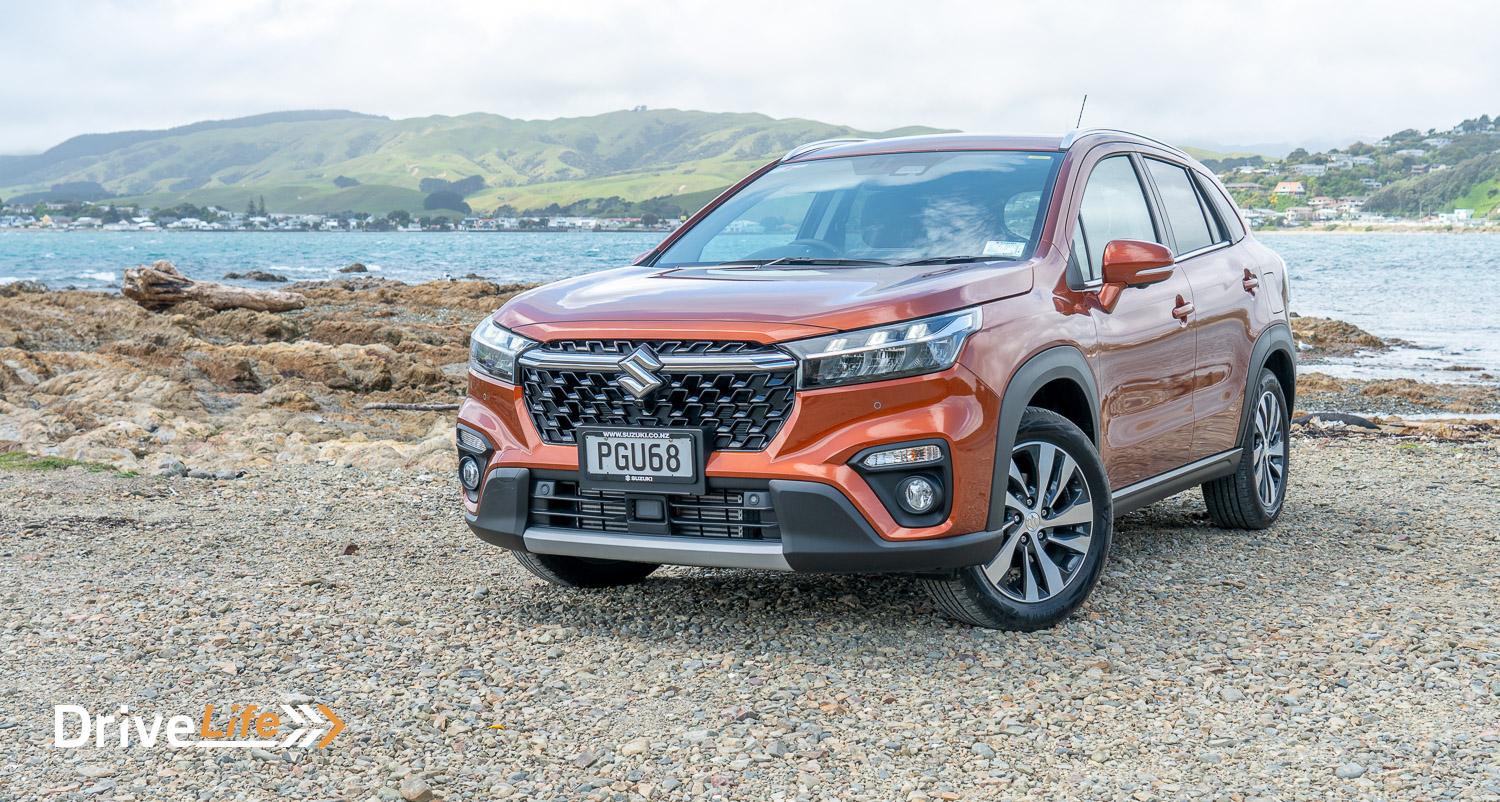
What’s The 2022 Suzuki S-Cross JLX Turbo Like To Drive?
The changes underneath the Suzuki S-Cross are also fewer and farther between.
Pop the bonnet of the S-Cross, you’ll find Suzuki’s K14C-DITC engine, also known as the Booster-Jet Turbo engine. It’s Suzuki’s own 1.4-litre turbocharged 4-cylinder that they insert into several models in their line-up, including the current and previous-gen S-Cross.
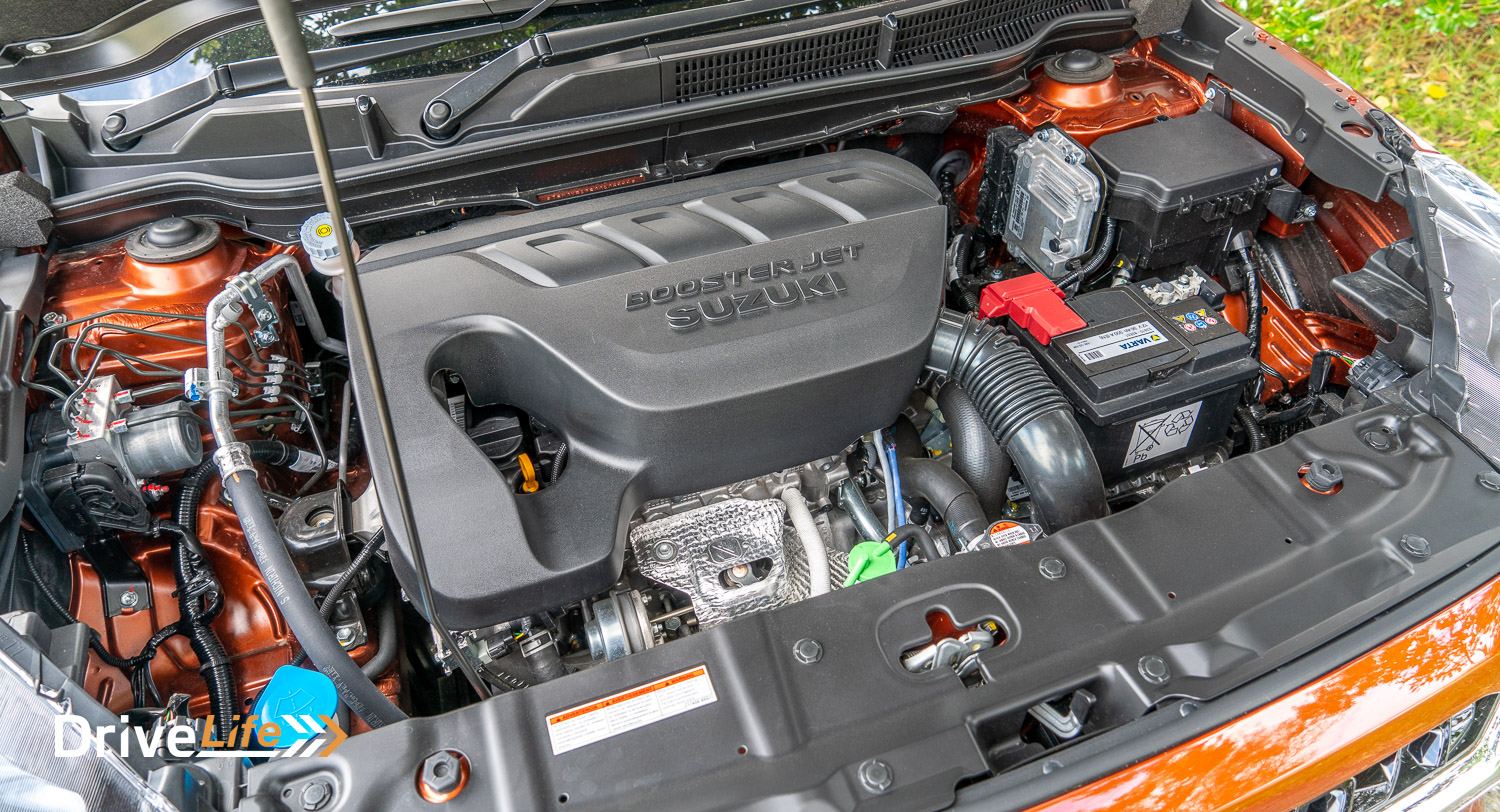
In the S-Cross, the engine produces 103kW of power and 220Nm of torque. No change from the previous car either. So, we know the performance should be relatively similar to before. But that isn’t a bad thing.
I remember when I first experienced this engine in the Suzuki Swift Sport. Its performance was excellent, but it was undoubtedly helped by the fact the Swift Sport is a total lightweight. The Swift Sport only weighs 970kg!
In comparison, the S-Cross is a bit chunkier. The JLX AWD weighing in at 1,265kg. So, does the extra weight and size of the S-Cross ruin this engine’s potential? Hardly.
Off-the-line, there’s plenty of torque on tap, whisking the S-Cross up to speed with assuring pace. The peak power figures mightn’t be all too convincing on paper, but from behind the wheel, the mid-range performance is decent. Push towards the top end, performance will start to taper. Fortunately, the 6-speed automatic is well-behaved, and will keep you in the right gear in many cases.
Sure, the S-Cross isn’t as spirited as the Swift Sport, but the performance was better than I was expecting.
Another strength of this Booster-Jet engine is its refinement. It’s an exceptionally smooth runner, and the power delivery is bordering on clinical. Granted, you will experience some turbo-lag from time-to-time. It’s also quiet too, meaning you aren’t going to stir any sleepy passengers when you pull to overtake.
When it comes to handling, the S-Cross isn’t exactly re-writing the rule book for small SUVs. The S-Cross uses a fair conventional Macpherson Strut front paired with a torsion-beam rear end. Standard economy car stuff.
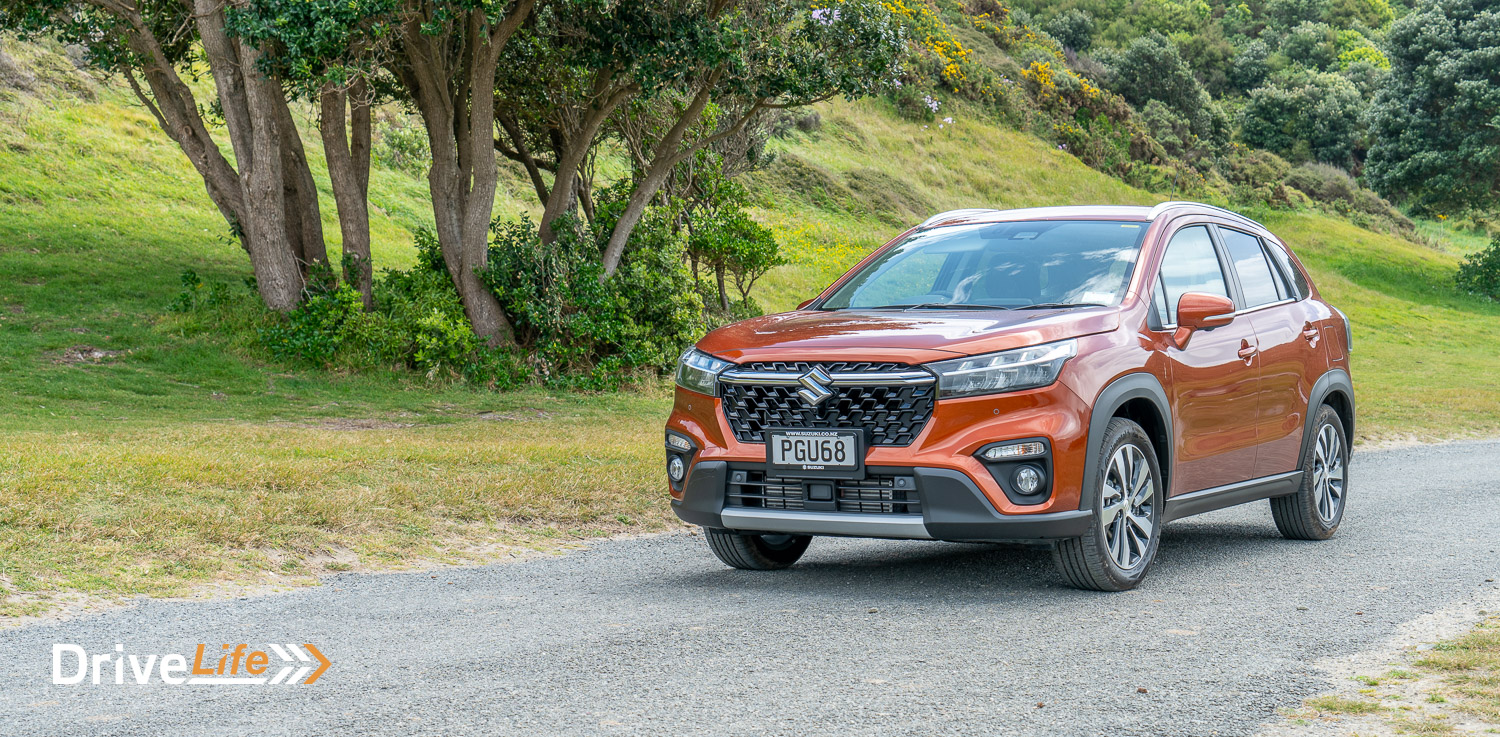
You’ll find the S-Cross’ natural boundaries fairly quickly if you take a run-up at some twisty road. Fortunately, the combination of a light chassis and Suzuki’s All-Grip Select AWD system maintains the S-Cross’ composure when things get difficult. The steering is also on the lighter side, which will be favoured by those navigating the school car park.
While handling might be par for the course, the ride quality is better. Even across rougher surfaces, the ride remains fairly compliant.
I suspect the tyre choice plays a big role here, with the S-Cross rolling out of the showroom on a set of Continental Eco-Contact 6 tyres. Keep in mind, it might cost you a bit more to replace these when the time comes. Suzuki isn’t the only brand that does this, however.
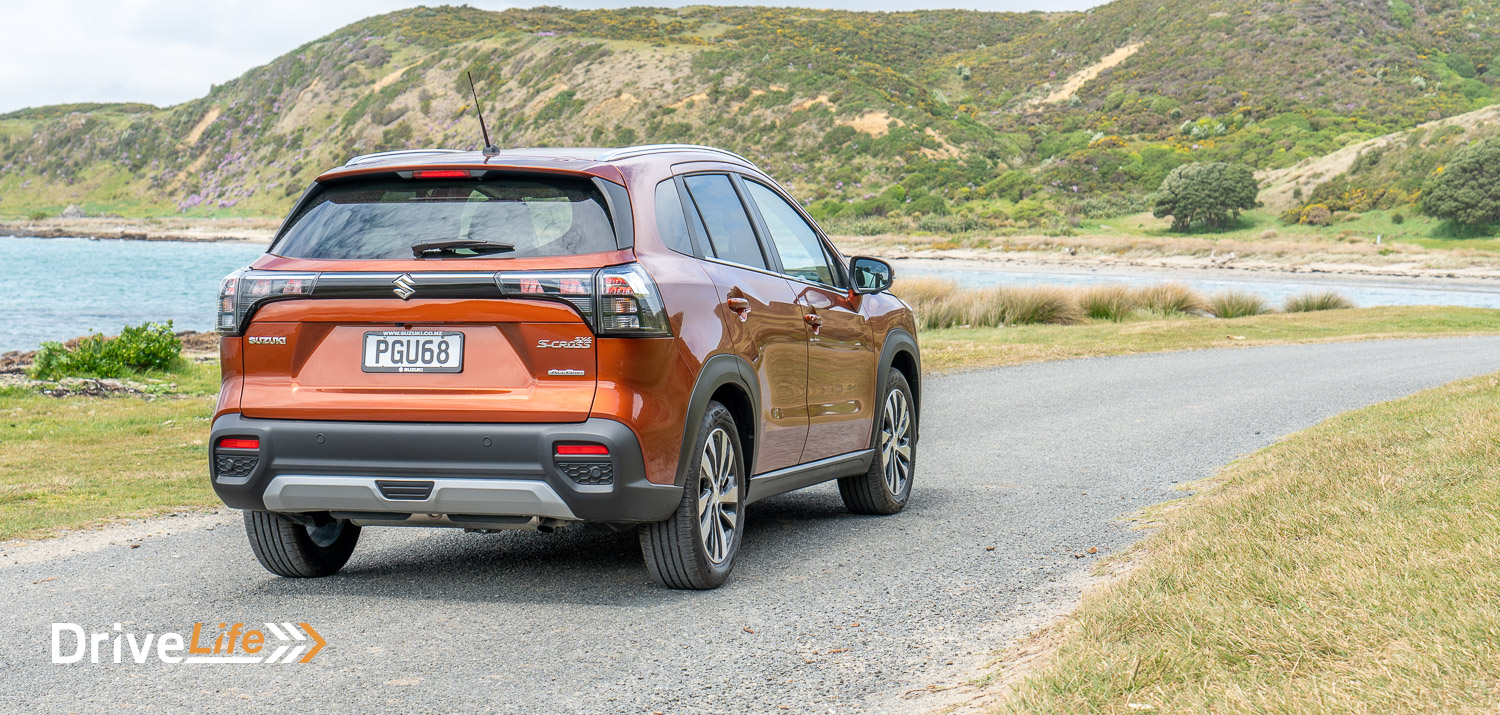
Speaking of rough surfaces, another selling point of Suzuki S-Cross is the All-Grip Select AWD system. giving the S-Cross a series of driving modes, including Auto, Sport, Snow and Lock.
All-Grip Select is Suzuki’s name for a software-based system, which uses vehicle stability control systems to optimise the powertrain for light off-roading. It’s nothing like All-Grip Pro, which is found in the Jimny.
The former three modes are relatively self-explanatory. The “Lock” mode is a more novel feature of Suzuki’s system. In the absence of a conventional locking differential, “Lock” mode is programmed to use the brakes to minimise wheel slippage, and direct torque consistently to all-four wheels with a 50:50 split. It’s not going to be as effective as a traditional locking differential, but it’s an impressive utilisation of software.
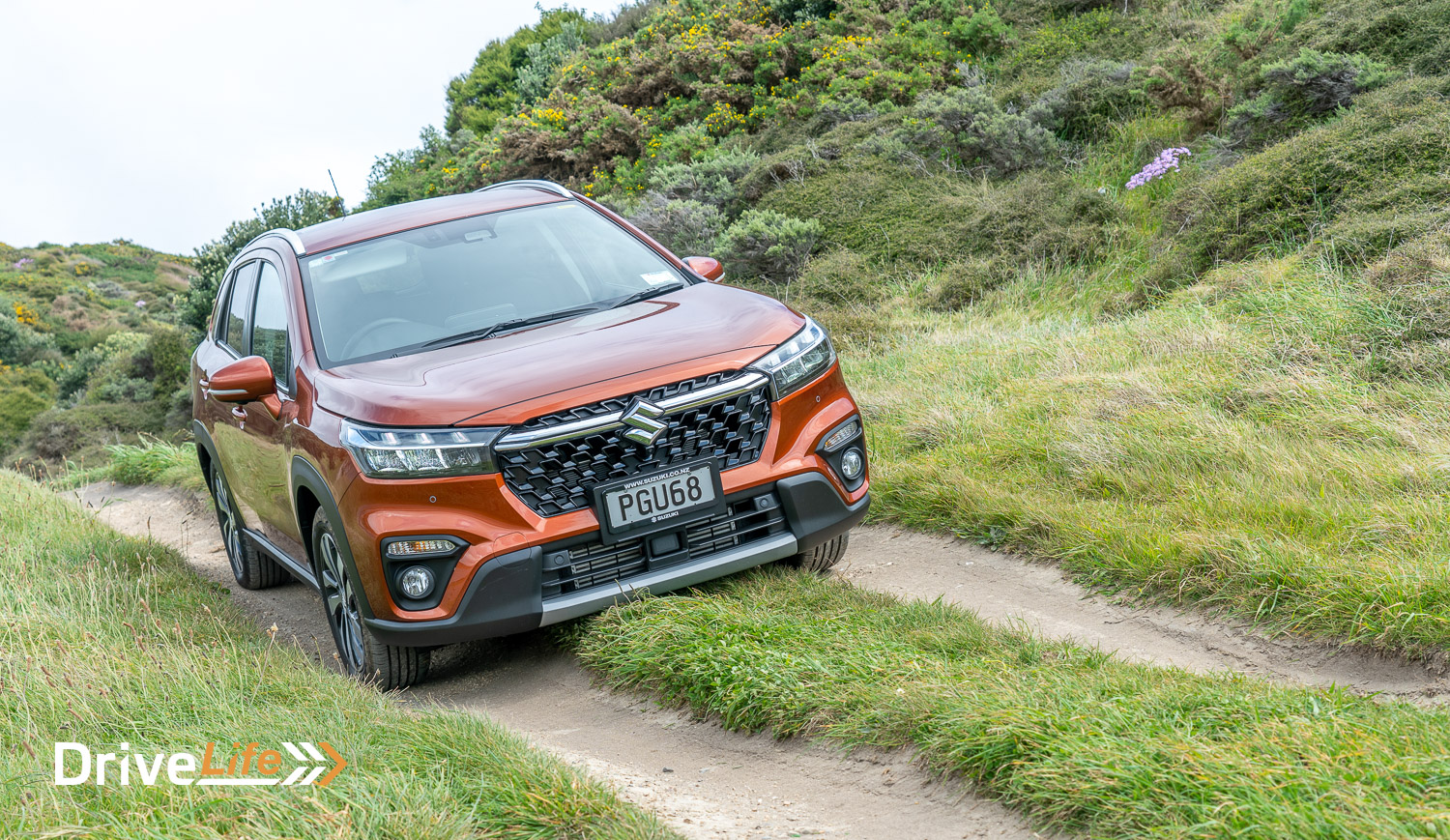
All this said, the S-Cross is not an off-roader. It doesn’t have the ground clearance, or any of the gear found in the Jimny to make it a proper off-roader. Instead, All-Grip Select is designed to get you out of a sticky situation.
Ground clearance is actually a bit of a sore point for the S-Cross. For a small SUV touting off-road ability, the ground clearance is only 175mm. Compared with another off-road capable small SUV, the Subaru XV that has 220mm of ground clearance, meaning the XV is much better suited for clearing obstacles compared with the S-Cross.
In short, you can count on the S-Cross to get you out of a sticky situation. But I’d be reluctant to cross muddy fields in an S-Cross. The same story also goes for the Suzuki Vitara, which uses the same system.
Being a light and relatively low-displacement engine, Suzuki claims a fuel economy figure for the S-Cross of 6.2L per 100kms NEDC, or 6.9L per 100kms when converted to 3P-WLTP. For all cars, the latter figure is more realistic. During our test, we averaged 7.3L per 100kms, which is fairly close to Suzuki’s claims.
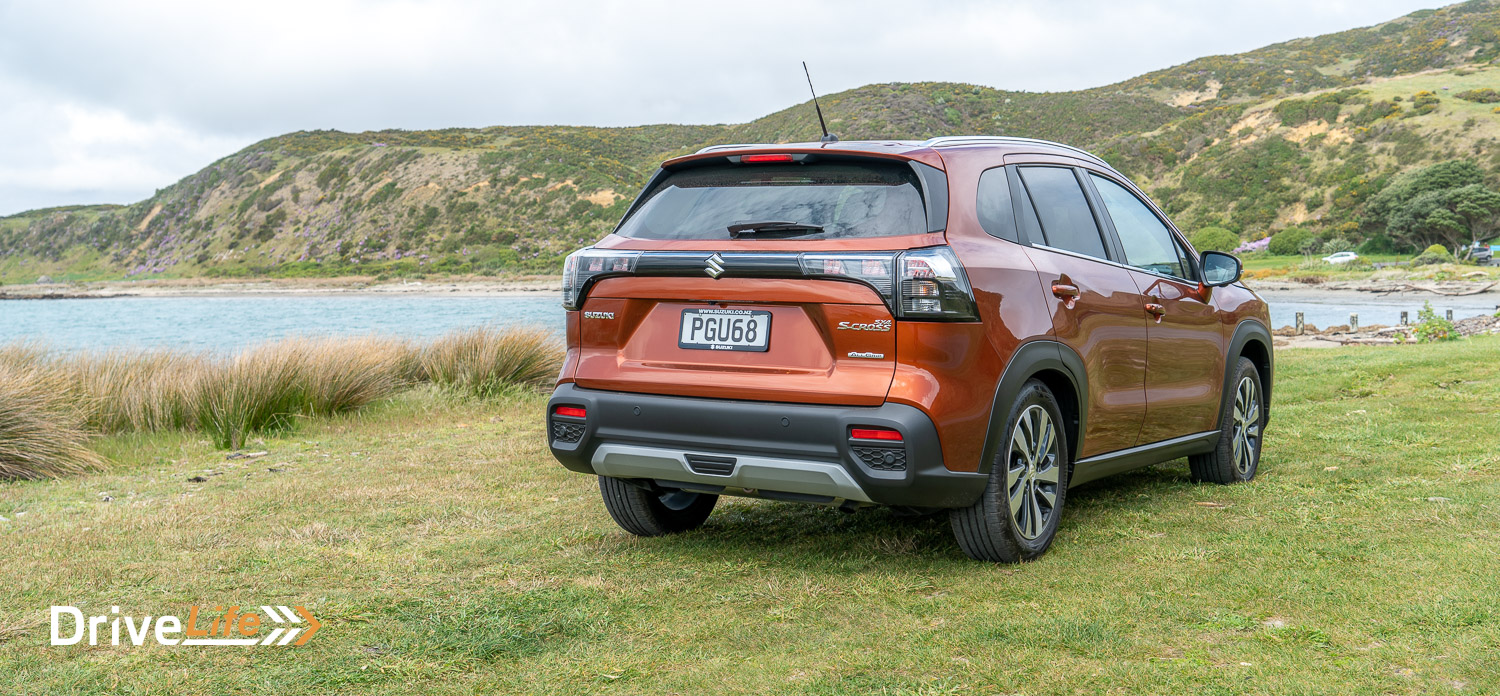
Although, we did manage 6.6L from the Swift Sport with the same engine, which demonstrates the penalty the S-Cross has from carrying the extra weight. But the bigger penalty is the 95-octane fuelling requirement, which will scoop a few extra bucks out of your wallet.
Being the newest car in Suzuki’s line-up, the S-Cross receives a handful of safety technology updates.
One of the more useful upgrades is the adaptive cruise control will now operate down to a halt. In other Suzuki models, the adaptive cruise would self-cancel below 30kph. Annoyingly, it’ll still self-cancel if you’re sitting stationary for a while.
Suzuki’s collision avoidance systems have also been tweaked, including blind spot monitoring, lane departure and rear cross-traffic alerts. All systems seem to work as described, without being too invasive.
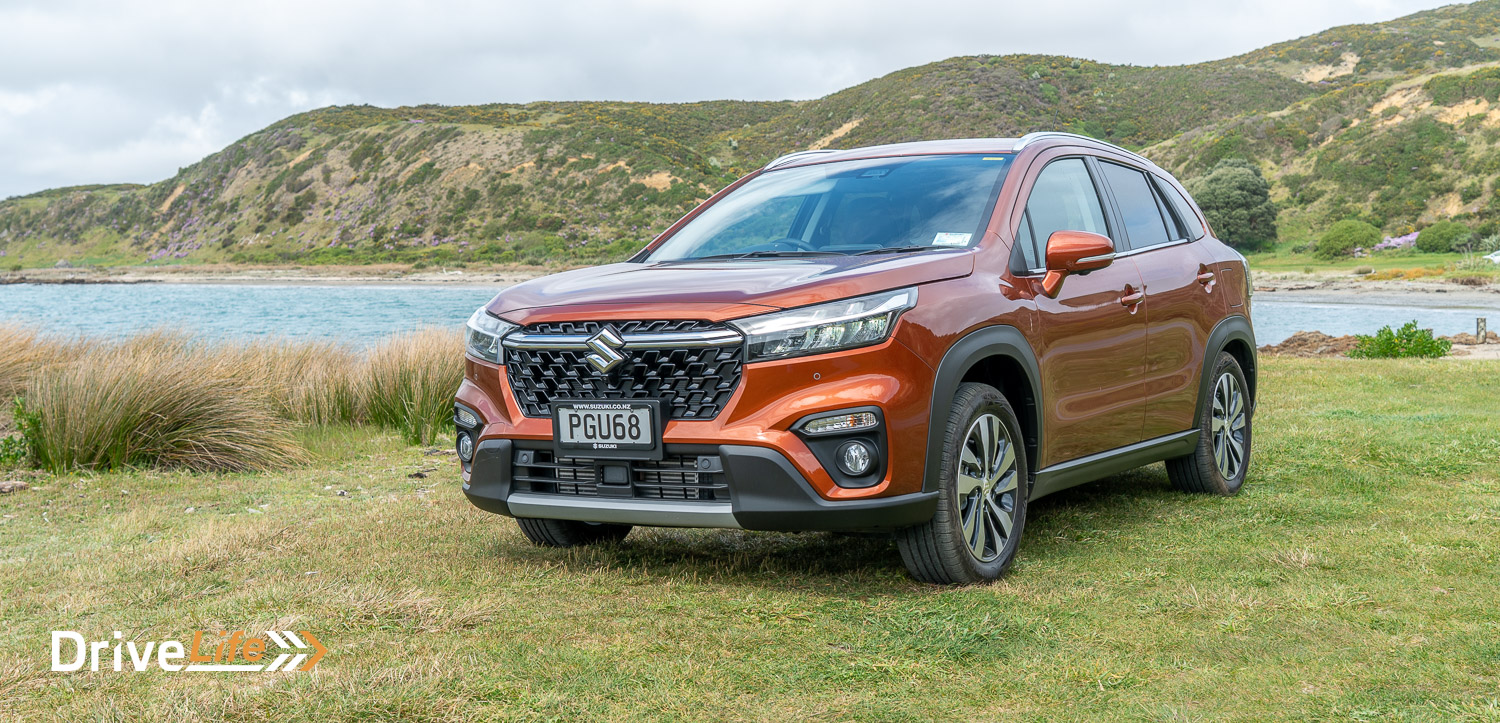
2022 Suzuki S-Cross JLX Turbo Specifications
| Vehicle Type | Compact 5-seat SUV |
| Starting Price | $40,990 |
| Price as Tested | $40,990 |
| Engine | 1.4-litre turbocharged four-cylinder petrol |
| Power, Torque kW/Nm | 103@5,500rpm 220@1,500-4,000rpm |
| Transmission | 6-speed Automatic transmission |
| Spare Wheel | Space saver |
| Kerb Weight, Kg | 1,265 |
| Length x Width x Height mm | 4,300×1,785×1,585 |
| Cargo Capacity, Litres | 430/1,230 (2nd row up/ 2nd row down) |
| Fuel tank Capacity, Litres | 47 (95 or higher) |
| Fuel Economy, L/100km | Advertised Spec – Combined – 6.2 Real-World Test – Combined – 7.3 Low Usage: 0-6 / Medium Usage 6-12 / High Usage 12+ |
| Towing Capacity Kg, unbraked/braked | 600/1,200 |
| Turning circle metres | 10.8 Small: 6-10m / Medium 10-12m / Large 12m+ |
| Warranty | 3 year / 100,000 km new vehicle warranty 5 year / 100,000 km powertrain warranty 5 year Suzuki roadside assistance |
| Safety information | ANCAP Rating – No current rating – Yet to be tested. Rightcar.govt.nz – 5 Stars |


